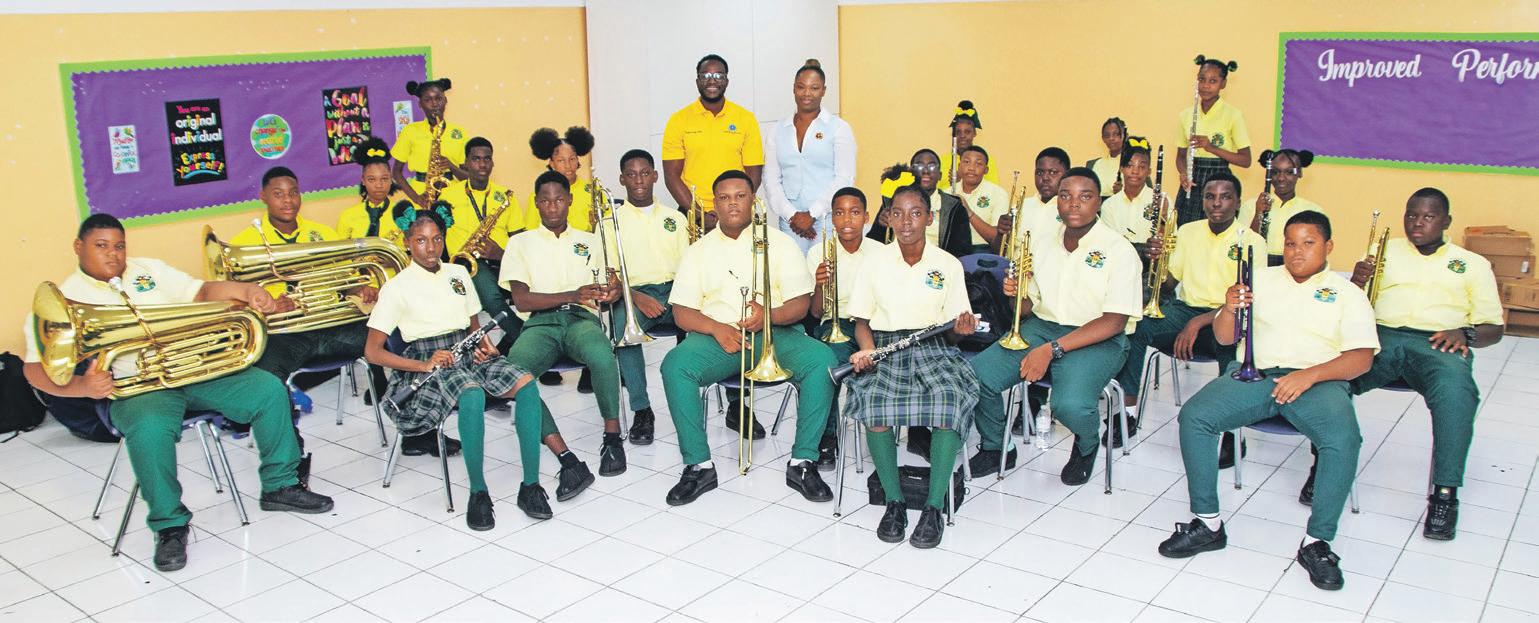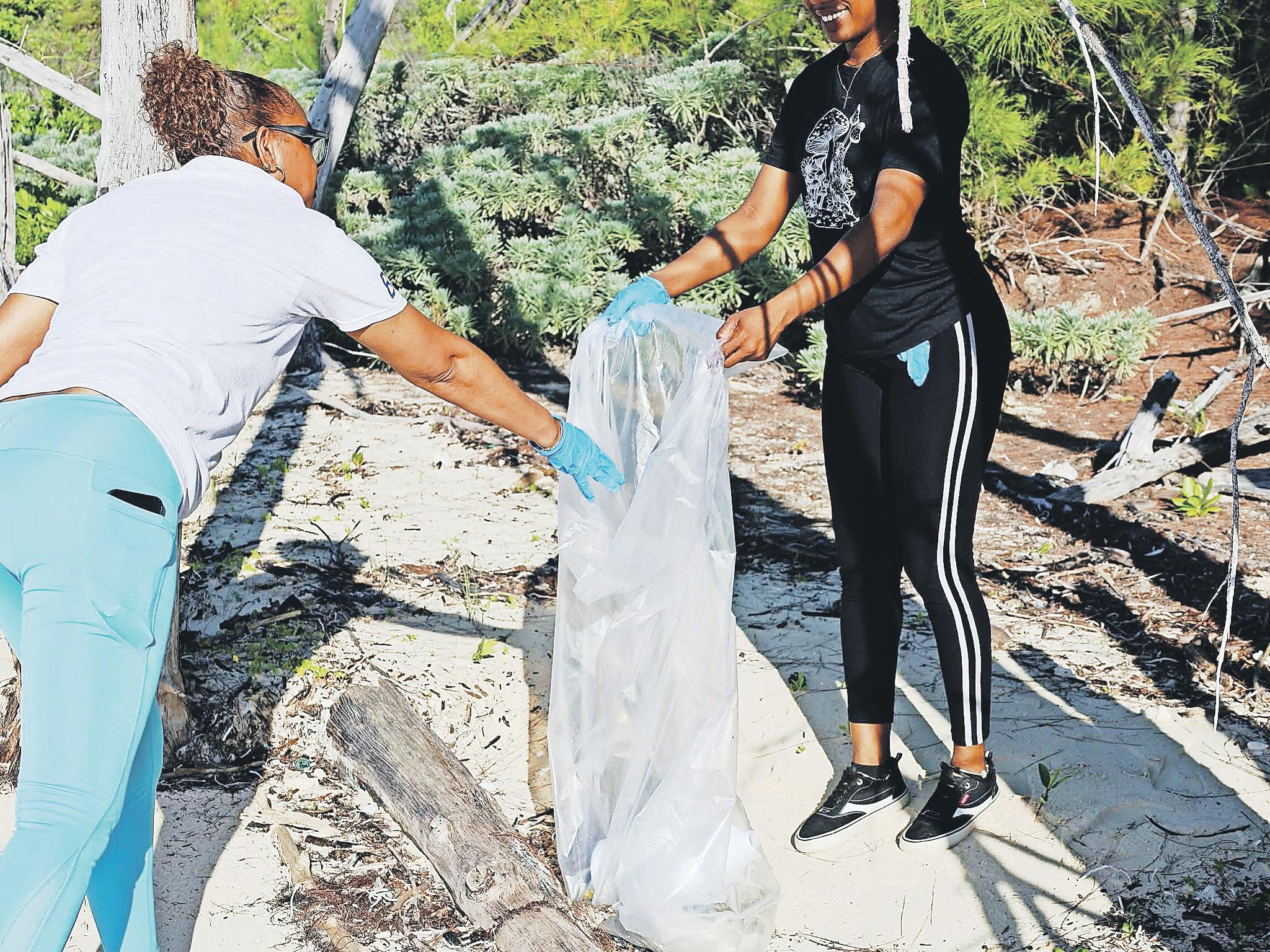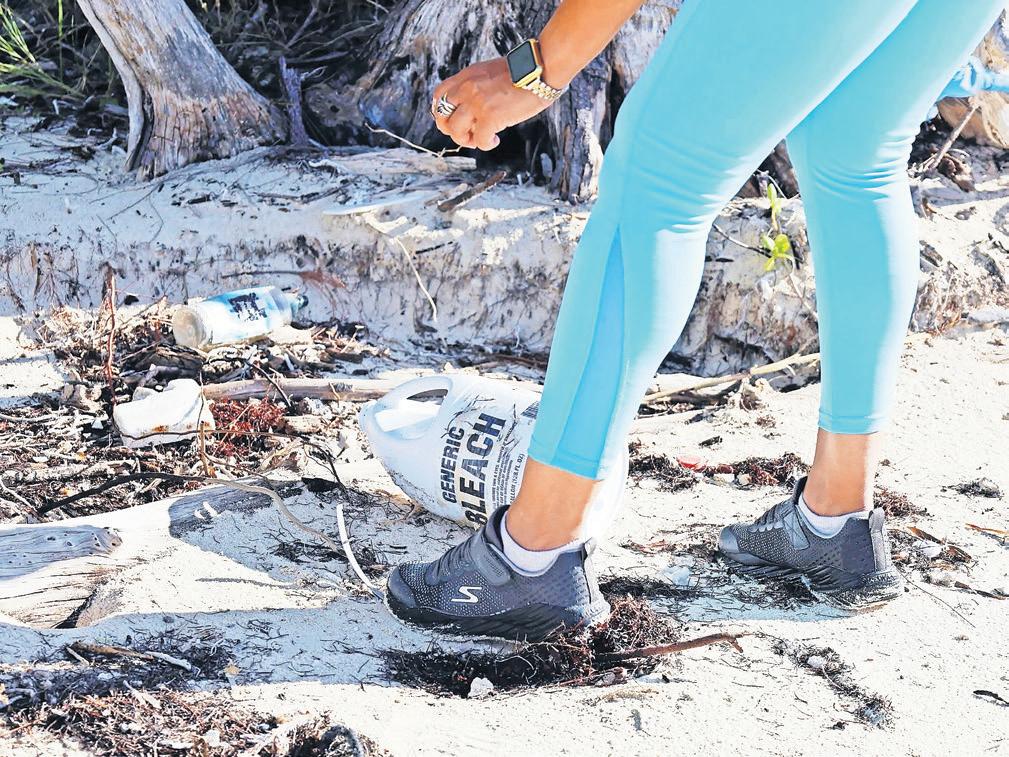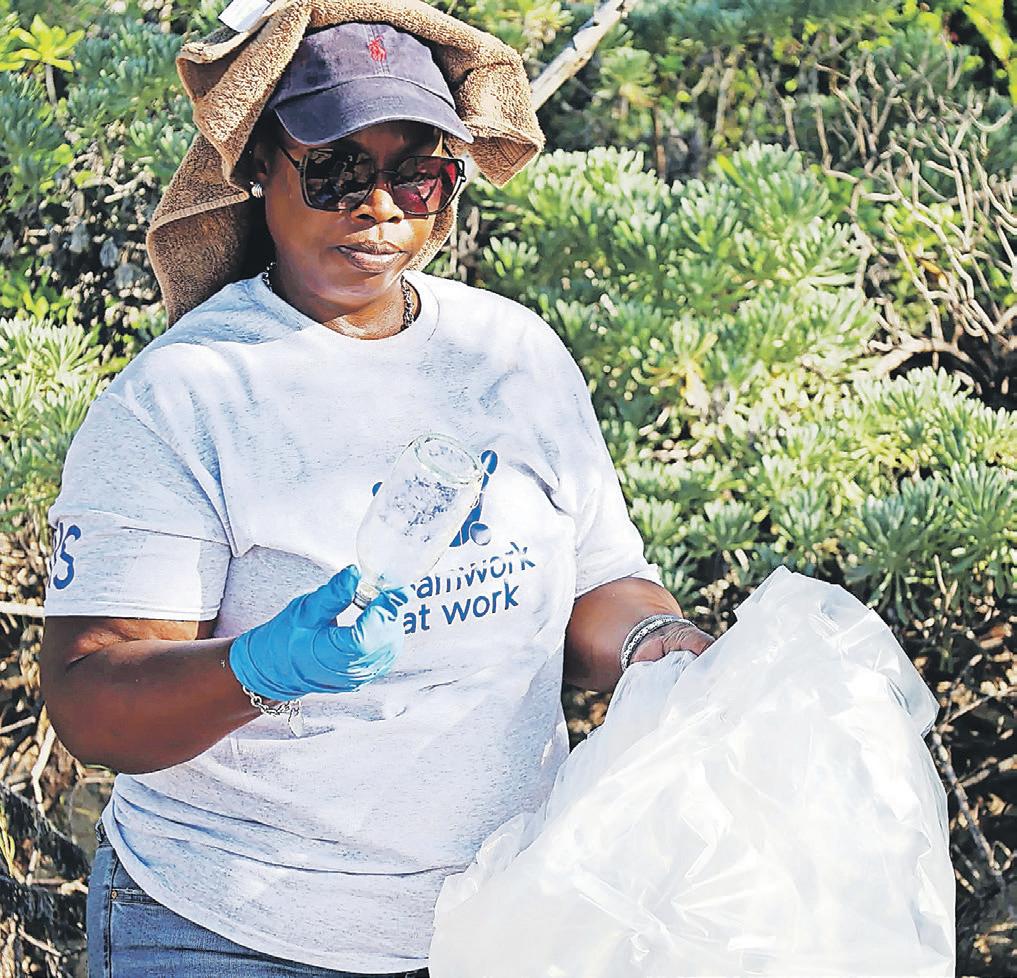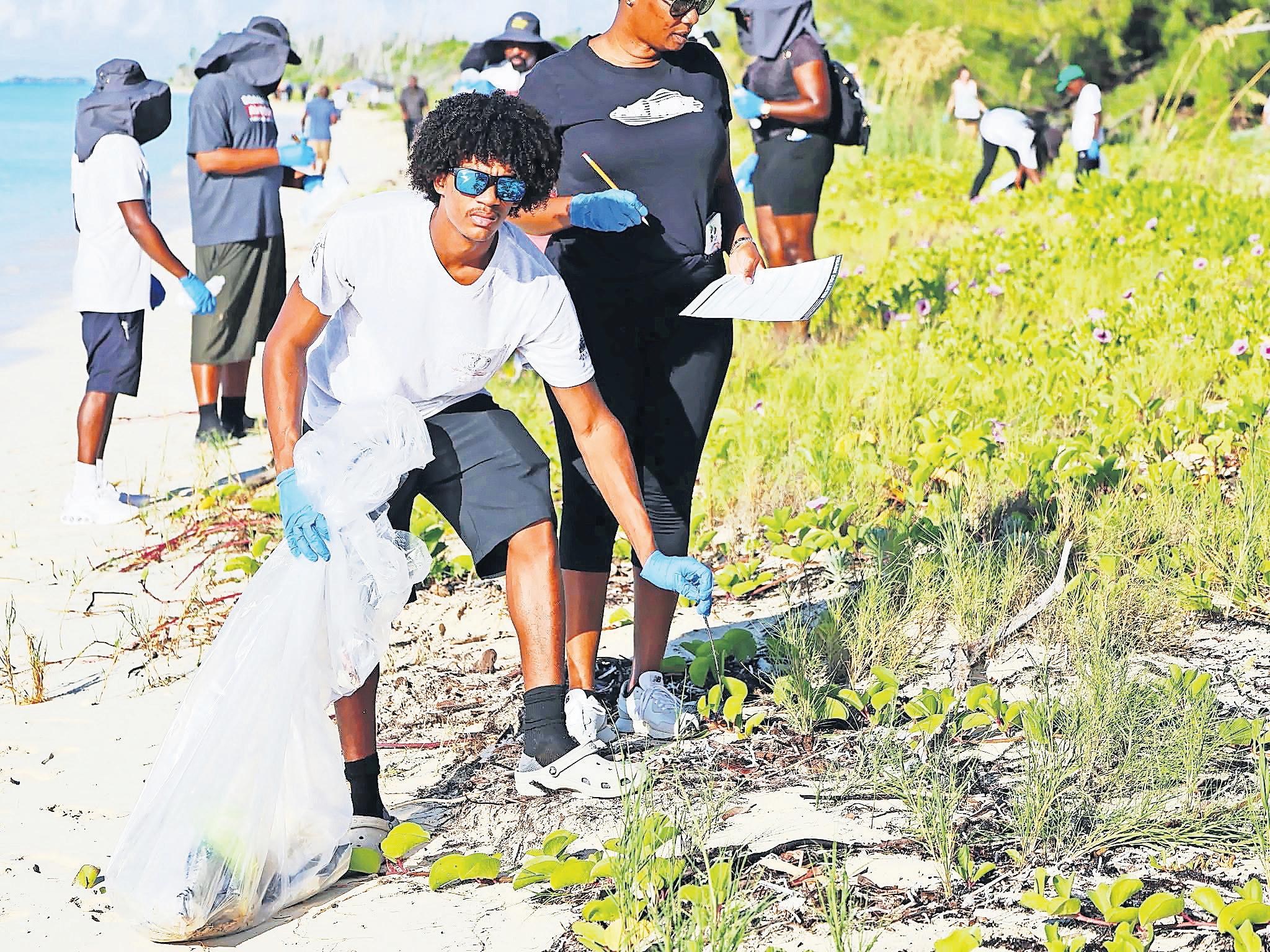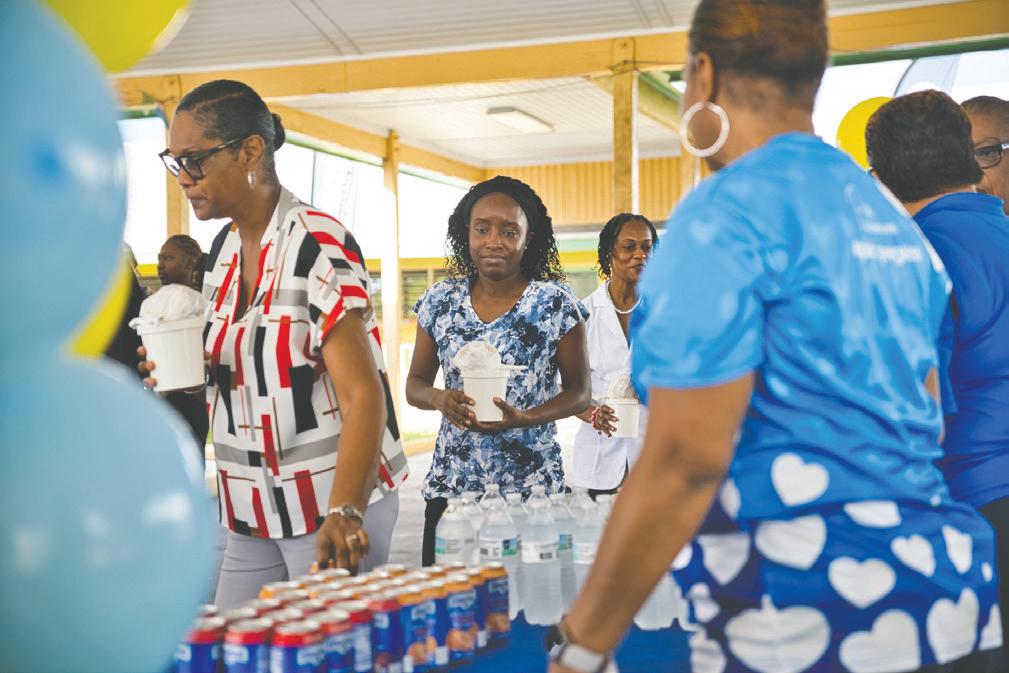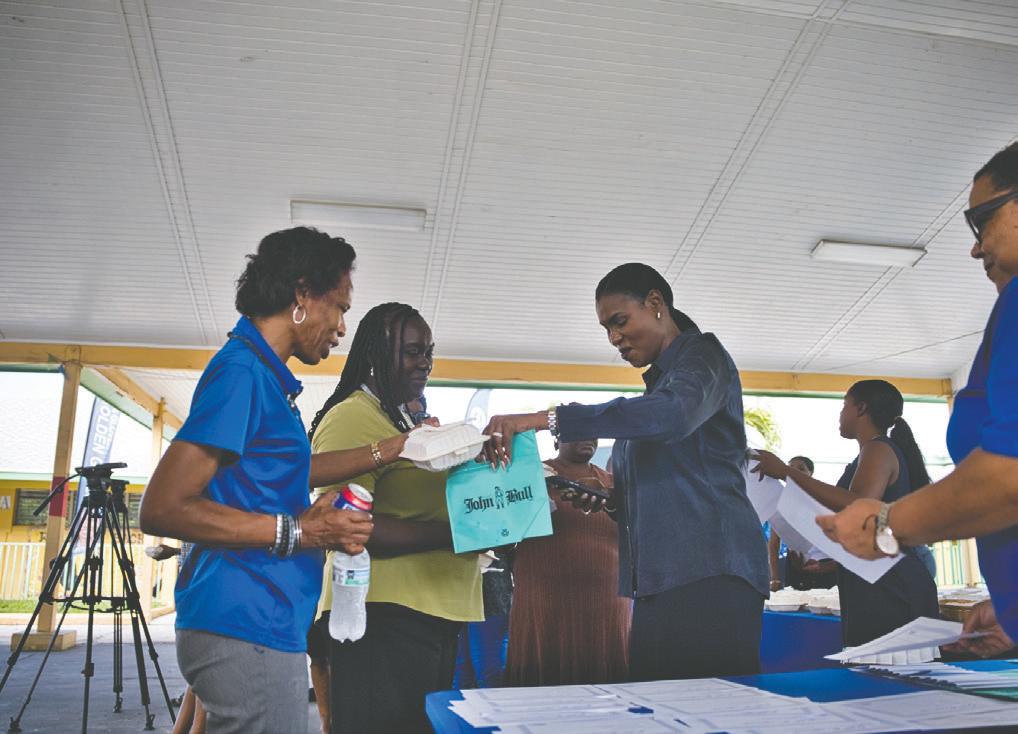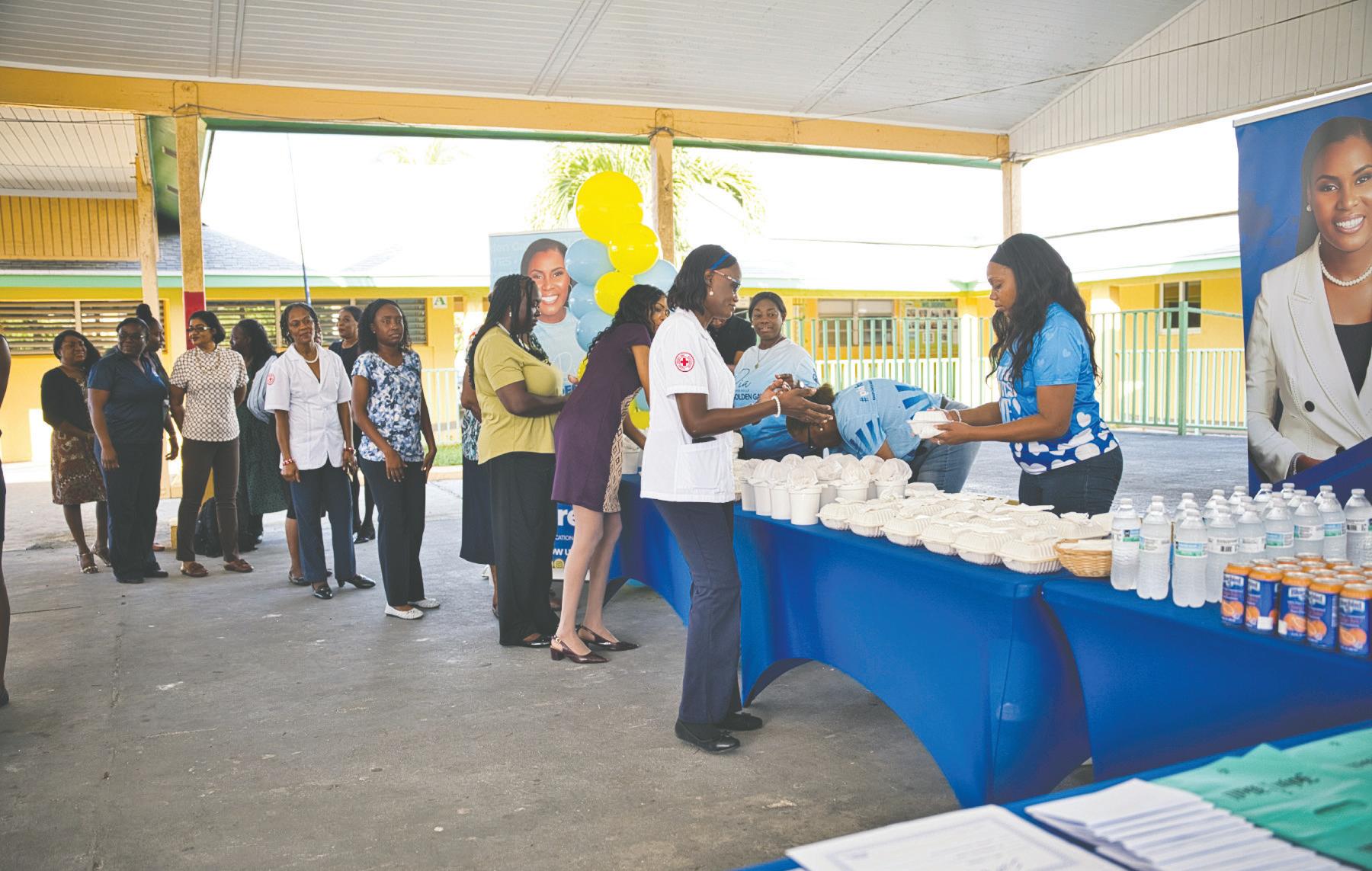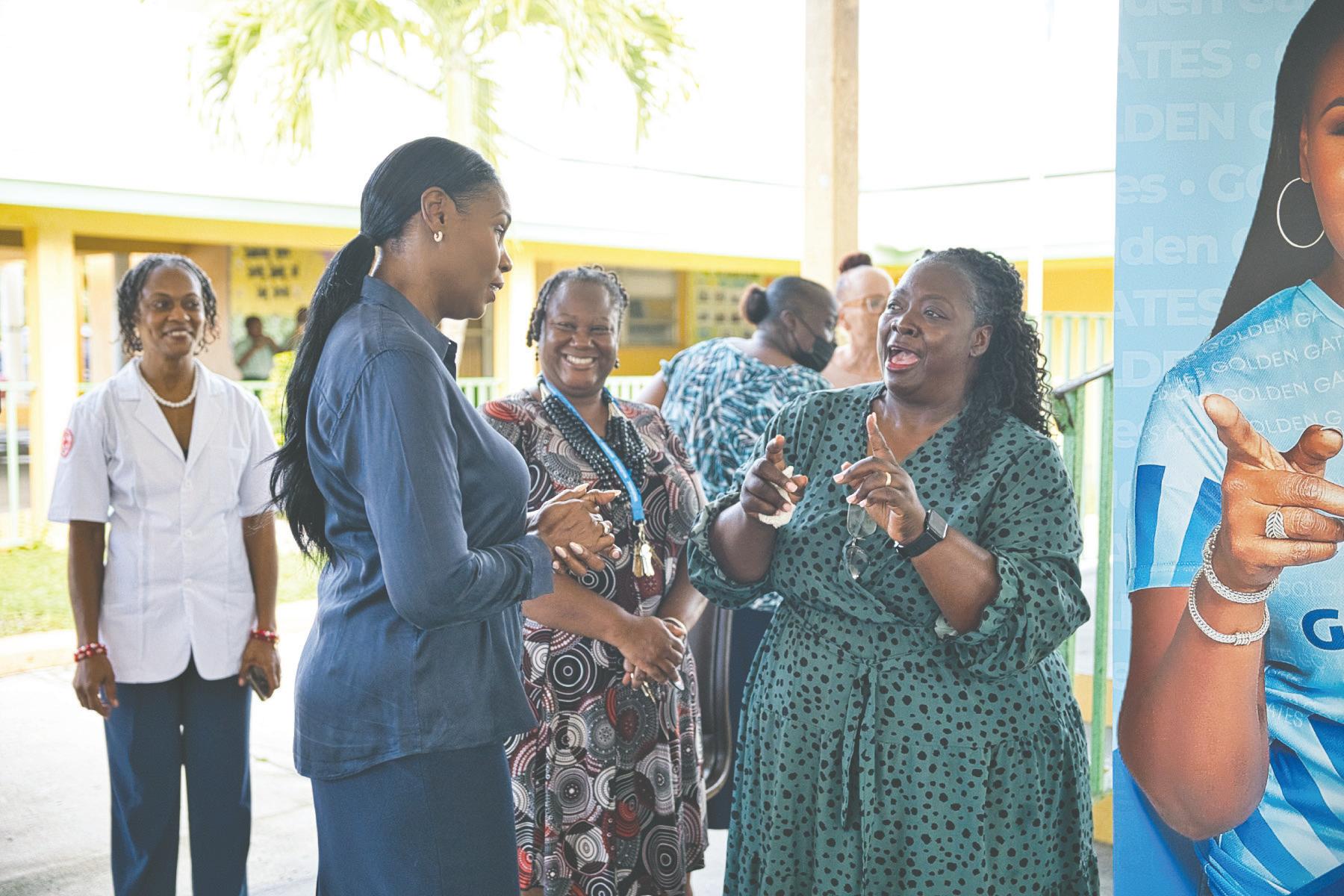woman & health











By LEANDRA ROLLE Tribune Chief Reporter
lrolle@tribunemedia.net
UNION leaders are blasting the government’s plan to raise wages for some public officers, saying the move lacks transparency, excludes key groups, and was announced without consultation.
The Bahamas Educators Managerial Union (BEMU) said the absence of details about how the increases will be applied and calculated is troubling, while Bahamas Public Service Union (BPSU) president Kimsley Ferguson accused the government of being “deceptive” and trying to “one up” unions. “I’m of the view that this administration is using the public purse to secure an election, and they’re not doing a very good job of it,” Mr Ferguson said, urging
By LEANDRA ROLLE
Chief Reporter
BAHAMAS Public Services Union (BPSU)
president Kimsley Ferguson said he was informed by Prime Minister Philip Davis that the government will not move forward with biweekly payments for public servants, despite much-touted earlier announcements about planned payroll reforms.
Mr Ferguson said Mr Davis told him and Bahamas Union of Teachers (BUT) president Belinda


Wilson disputes minister’s claim all Nassau schools have principals
LYNAIRE MUNNINGS
By
Tribune Staff Reporter lmunnings@tribunemedia.net
EDUCATION Minister Glenys Hanna-Martin’s claim that all New Providence schools now have principals is being disputed by union leaders, who say several campuses remain leaderless three weeks into the new school year.
By DENISE MAYCOCK Tribune
Freeport Reporter dmaycock@tribunemedia.net
A BAHAMIAN playground contractor says the swing set that collapsed and killed a six-year-old boy in Grand Bahama last week appears not to have been properly installed.
“Based on the pictures I’ve seen, it does look like an issue where the equipment is either not installed, or not properly installed. It’s very important to have the playground properly installed. And so looking at the photos, it appears
By PAVEL BAILEY Tribune Staff Reporter
pbailey@tribunemedia.net

A MAN was remanded to prison yesterday accused of raping a 71-year-old woman earlier this month. Police said Austin Williams, 62, raped the woman in New Providence on September 8 and also groped her privates. He was charged with rape and indecent assault before Magistrate Abigail Farrington and was not required to enter a plea.
Bahamas Union of Teachers president Belinda Wilson said yesterday that Claridge Primary, Gerald Cash Primary, and Judith Thompson Primary are still without principals. She noted that while someone was appointed to Judith Thompson, that person has since returned to the Family MAN CHARGED WITH RAPE OF 71-YEAR-OLD WOM AN ‘Dea Dly swing set appeareD NOT CORRECTLY installeD’

By JADE RUSSELL Tribune Staff Reporter jrussell@tribunemedia.net
AT 55, Portia Grant
thought her lifelong dream of becoming a trained entertainer had passed her by as motherhood and the demands of providing for her family had taken centre stage. Yesterday, she stood proudly in a CAPAS shirt as one of 52 students welcomed into the first class of The Bahamas Creative and Performing Arts School (CAPAS).
“I would say it’s never too late, just you know, because it’s inspiration, it’s a motivation. It helps others to come on,” Ms Grant said when asked what advice she had for those who feel their dreams are out of reach.
She said she had taken dance and performance classes since childhood, but never imagined a creative school would be established in The Bahamas. Now, she hopes to use her craft to inspire and motivate others.
The launch of CAPAS was described as a turning
point for the country’s creative economy. The school is operating from the former Phil’s Food Services property on Gladstone Road, which has three buildings. For now, classes are being held in the northeastern section of the site, behind the Small Business Development Centre, while renovations continue on the main building that will house the full campus and studios.
Education Minister Glenys Hanna-Martin called the opening “Freedom Day”. She said the school gives space to those with creative passions, noting that while innovation and creativity are vital to the economy, the industry has long been neglected in The Bahamas. She added that when she retires, she hopes to join CAPAS herself.
Project head Ian Poitier grew emotional as he finally welcomed students after a 12-year effort to establish the school.
“I don’t know how I’m feeling,” he said. “I stopped
feeling a few days ago and now just very full. “It’s only taken 12 years since I was first approached by the government and asked to put together a proposal for this. So, it’s been a long journey. I’m just so overwhelmed, really, by the students and the faculty and their trust and confidence in what we’re going to do.”
In its foundation year, CAPAS will focus on acting, dance, and singing. Students will also begin preparing for the school’s grand opening next year.
Mr Poitier said CAPAS will partner with the Bahamas Technical and Vocational Institute (BTVI) from January to offer courses in lighting, hair, and make-up.
Bahamians will attend tuition-free, while international students will pay fees. Mr Poitier said some students may still face financial challenges, and fundraising is underway to provide care packages, with donations already pledged by private supporters.
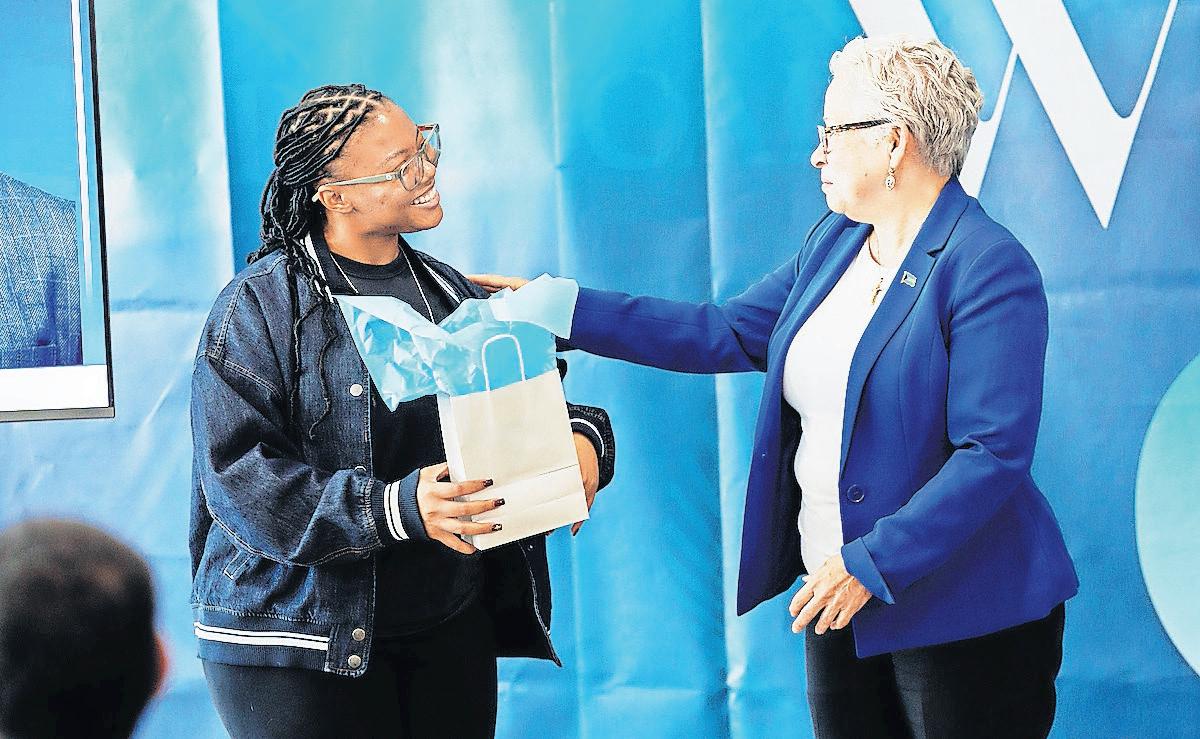
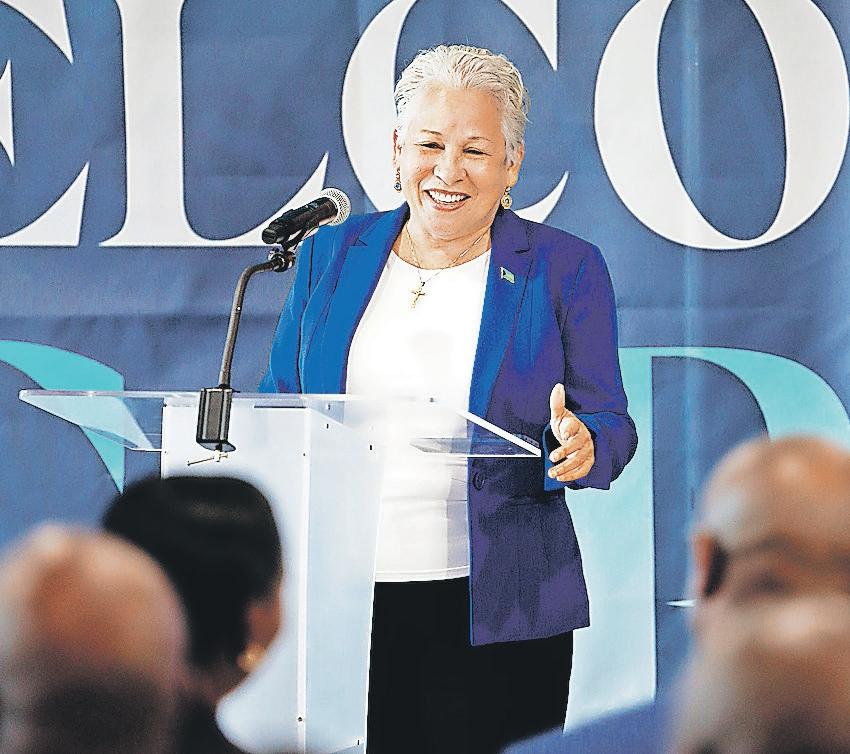
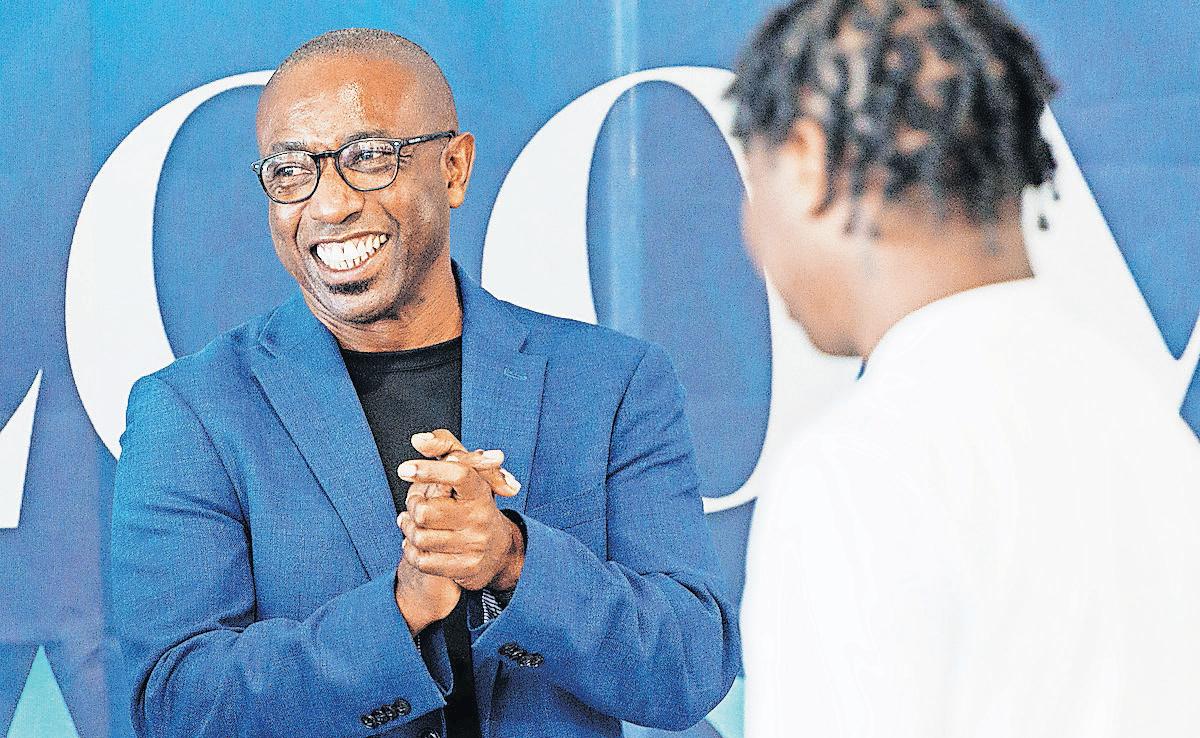
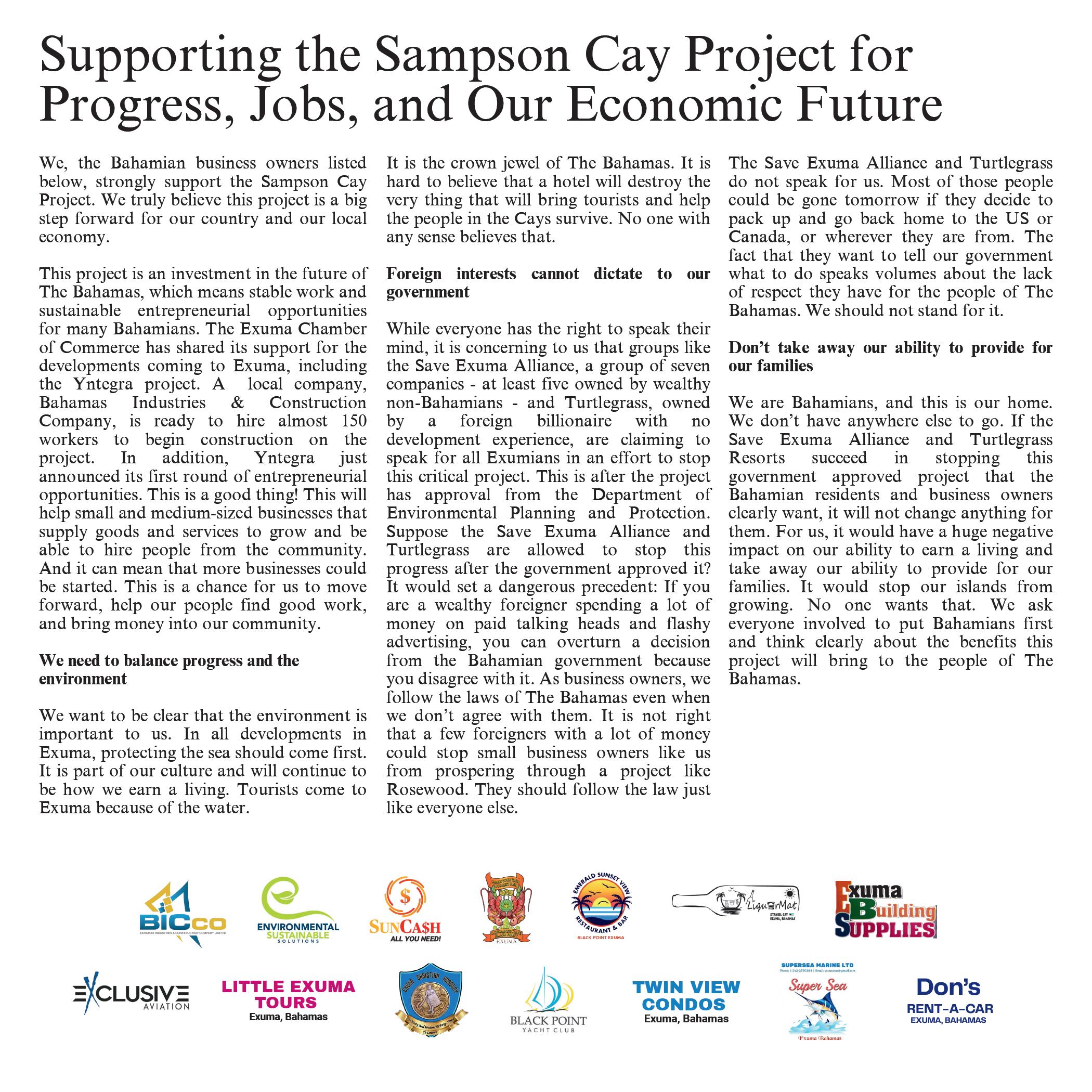
that that wasn’t the case. It’s unfortunate,” said Cleveland Rolle, operator of Creative Kids Craft and Woodworking Ltd.
Vernal “Zion” Williams was struck in the face by the swing set during lunch break at Caring Hands Academy on Friday. His mother, Cardia Williams, has since called for frequent inspections of school playgrounds.
Mr Rolle, the only licensed playground contractor in The Bahamas who both manufactures and installs commercial equipment, has more than 30 years of experience and has carried out projects in Grand Bahama and elsewhere. He said playground equipment must always be anchored in steel and cement.
“They should always have somebody to check to make sure it meets the standard in terms of the footage. When you do installations, you should dig into the ground, pour cement, or use a peg or put steel and drive it into the ground – it is very important that the equipment is properly installed,” he said.
He warned that too many playgrounds, including some at private homes, lack
proper safety checks.
“I think there are a lot of playgrounds around, even at some small homes, that are just sitting on the ground, waiting for an accident to happen,” he said.
Mr Rolle said equipment layout is also critical to preventing accidents and argued that playgrounds should be subject to strict regulations and inspections.
“I think that the ministry has a group of persons that probably would normally go out and inspect to make sure; I don’t know the depth of their equipment inspections. But if there’s not, I think there needs to be an in-depth inspection when it comes to playground equipment.”
He added that his company requires all commercial equipment it sells to be installed to ensure safety.
“We’re not interested in just selling playgrounds. We want to make sure they’re installed properly.”
Mr Rolle said playground installation should involve engineering oversight.
“They should also have some engineering aspect. There’s a lot more that goes into installing playground equipment because there’s all kind of ways that accident can happen. So, it’s very important for it to be regulated,” he said.
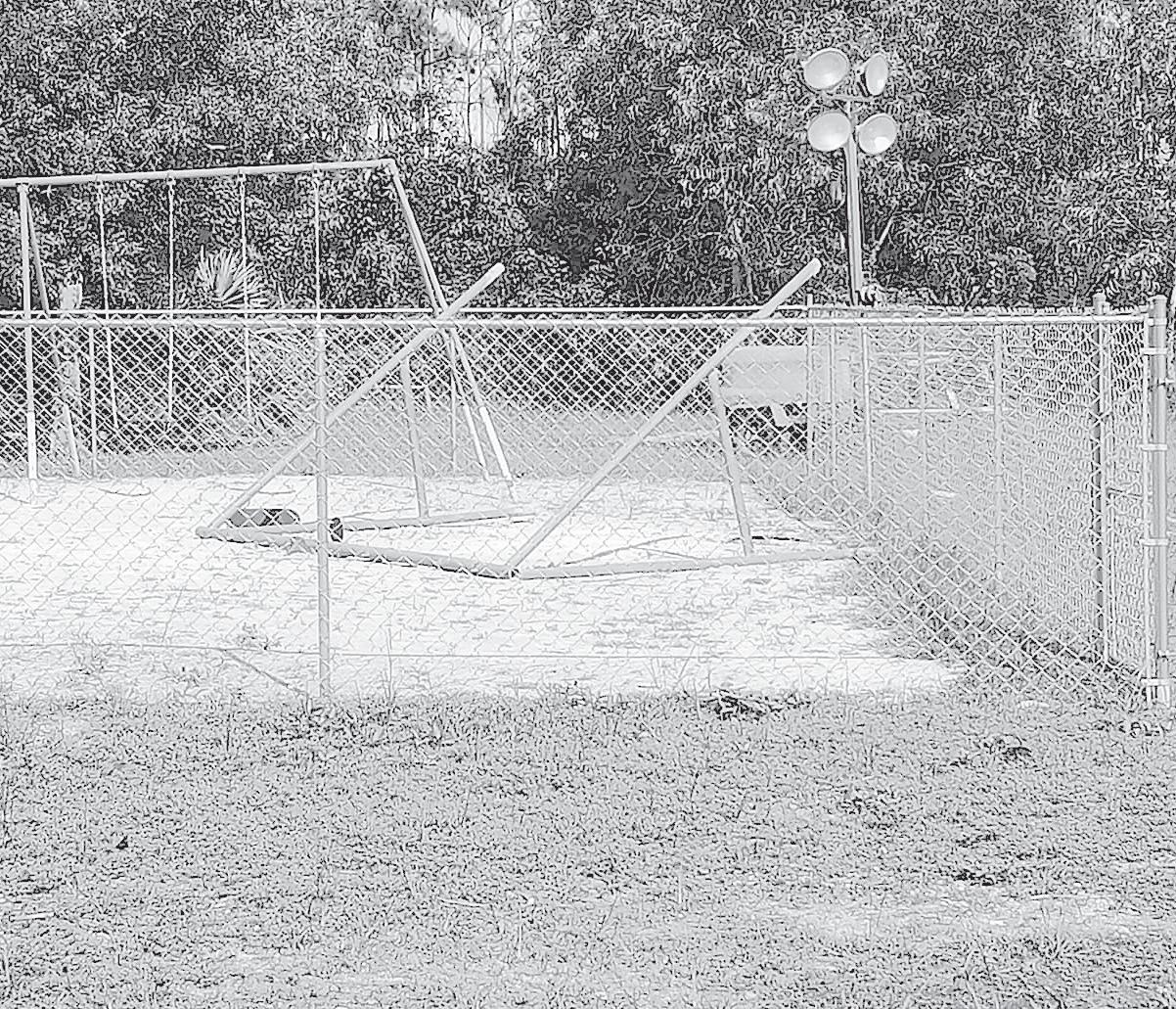
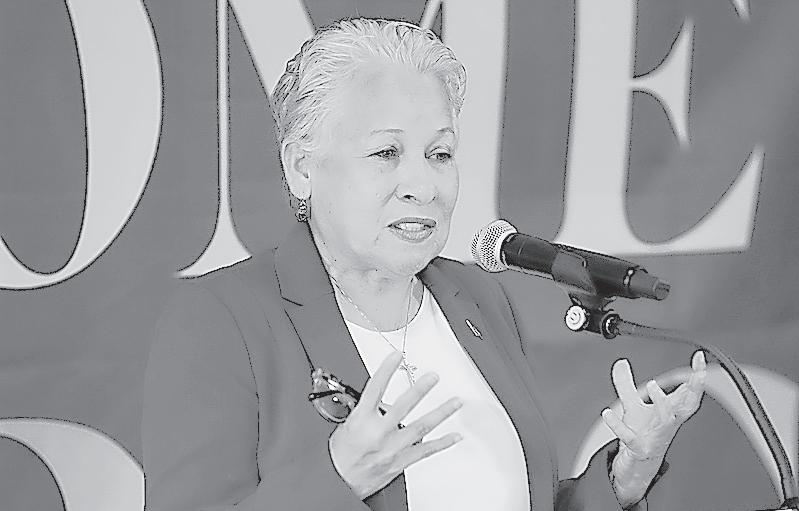
Islands “to complete her packing”, leaving the post effectively vacant.
Bahamas Education Managerial Union president Stephen McPhee also listed Palmdale Primary, Adelaide Primary, Tiny Toote PreSchool, and Coconut Grove Pre-School as still without principals. He added that Eva Hilton Primary is without a vice principal.
“While some persons have been identified, we understand, for those schools needing principals, they have not reported in a number of cases to date for various reasons,” Mr McPhee said.
Mrs Hanna-Martin told reporters yesterday she expects word “shortly” from the Public Service Commission on final Family Island postings.
“This was a combination of factors, you know, including early retirement, unexpected resignations etc and just a number of convergence of issues that led us to this point,” she said.
“I’m beginning to feel that we are now at the end of this process, and that in the next day or two, we will be able to say we have principals in all schools in the country.
I think it was about seven schools, and I believe we’re getting in front of it now.”
The leadership gaps have been a recurring problem since September began. Mr McPhee earlier revealed that schools such as EP
Roberts, Columbus Primary, Uriah McPhee, and Claridge Primary were still without principals.
At Columbus Primary, the issue has become particularly acute, with only one teacher reportedly showing up for duty one day last week. The school had been without a principal since June 2023, leaving staff “stressed” and administrators “overworked”, according to Mrs Wilson. She also highlighted other Family Island schools still without permanent principals, including Harbour Island Comprehensive, Central Eleuthera High, GM Major Primary, North Long Island High, Ellen Coakley High in Exuma, PA Gibson Primary, and United Estates Primary in San Salvador.
Director of Education Dominique McCartneyRussell said last week that interim leaders have been installed in some schools but admitted the system is facing a “domino effect” as administrators are shuffled.
Mrs Hanna-Martin further acknowledged that teacher shortages remain, with about 30 posts unfilled. Recruitment drives and retired teachers are helping to plug gaps, but she stressed the challenge is not unique to The Bahamas, describing it as a “global issue” also affecting the US, Europe, Latin America, Africa, and the UK. Despite the setbacks, she insisted: “I am confident that this will be a productive year for our students.”
By JADE RUSSELL Tribune Staff Reporter jrussell@tribunemedia.net
EDUCATION Minister Glenys Hanna-Martin yesterday pledged urgent action to enforce safety protocols in pre-schools after the death of a six-yearold boy in Grand Bahama, saying she could not imagine the grief of his mother.
“I want to give condolences to that family, to that mother. Words just cannot express. I’m a mother, I just can’t imagine what she’s going through,” Mrs Hanna-Martin told reporters.
Her comments came after Vernal “Zion” Williams was killed on Friday when a swing set collapsed on him at Caring Hands Academy. Police said the accident happened shortly after 11am.
Zion was taken to Rand Memorial Hospital in his mother’s car after an ambulance was delayed. Doctors tried to resuscitate him but were unsuccessful.
His mother, Cardia
Williams, told The Tribune she discovered the tragedy when she arrived with her son’s lunch. She said the swing set should have been inspected and secured regularly, adding that the incident might have been avoided with proper safety checks.
Mrs Hanna-Martin said officials will meet this week to ensure tighter scrutiny of private and public preschools.
“We’re going to meet this week to ensure that a much closer look is given, having regard to this terrible incident,” she said. “To ensuring that the protocols and the policies are being effectuated in these various private preschools and even in our own preschools.”
The Ministry of Education has launched a preliminary investigation through its Pre-school Unit and the Pre-school and Daycare Council. Police inquiries are ongoing. Zion, a fraternal twin, had been enrolled at the school for about six months.

By EARYEL BOWLEG Tribune Staff Reporter ebowleg@tribunemedia.net
SENATOR Maxine
Seymour has blasted the government for what she called the “continued neglect” of the Nazareth Centre in Millennium Gardens, saying the facility remains abandoned nearly two years after the Catholic Church ended its partnership with the state. Mrs Seymour said the
site is unsafe, overgrown, incomplete, and empty, calling it a shameful derelict property.
“This has dragged on far too long. Our children deserve stability, not indefinite displacement and neglect. The Nazareth Centre must be restored to full operation with urgency, transparency, and accountability. Our children matter. Put them first. Provide answers now,” she said in
a statement. She demanded clarity on what work has been completed at the facility, when it will be finished, and which organisation has been chosen to manage its operations and under what terms. Most pressing, she said, are the conditions under which displaced children are being housed and the safeguards in place to ensure they are not placed in environments resembling
correctional or custodial facilities.
The Roman Catholic Archdiocese ran the Nazareth Centre, one of the Department of Social Services’ residential care facilities for children, for more than 20 years before its partnership with the government ended in December 2023. Social Services Minister Myles Laroda said at the time that officials were in discussions with two other
groups about the centre’s future. Chief social worker Juliet Neymour told The Tribune yesterday that the Department of Social Services is still managing the Nazareth Centre. She said the children have been placed in homes such as the Bilney Lane Children’s Home and a property on the Willie Mae Pratt Centre for Girls compound, assuring that these homes are designed
for care.
“Bilney Lane we had that open up before we just reopen it just to have the nursery there, because the two areas that we have there, we have the boys and the girls separated, and we didn’t have a facility for the nursery right there,” she said. She could not confirm the progress of the centre’s renovation.
Mr Laroda did not respond up to press time.
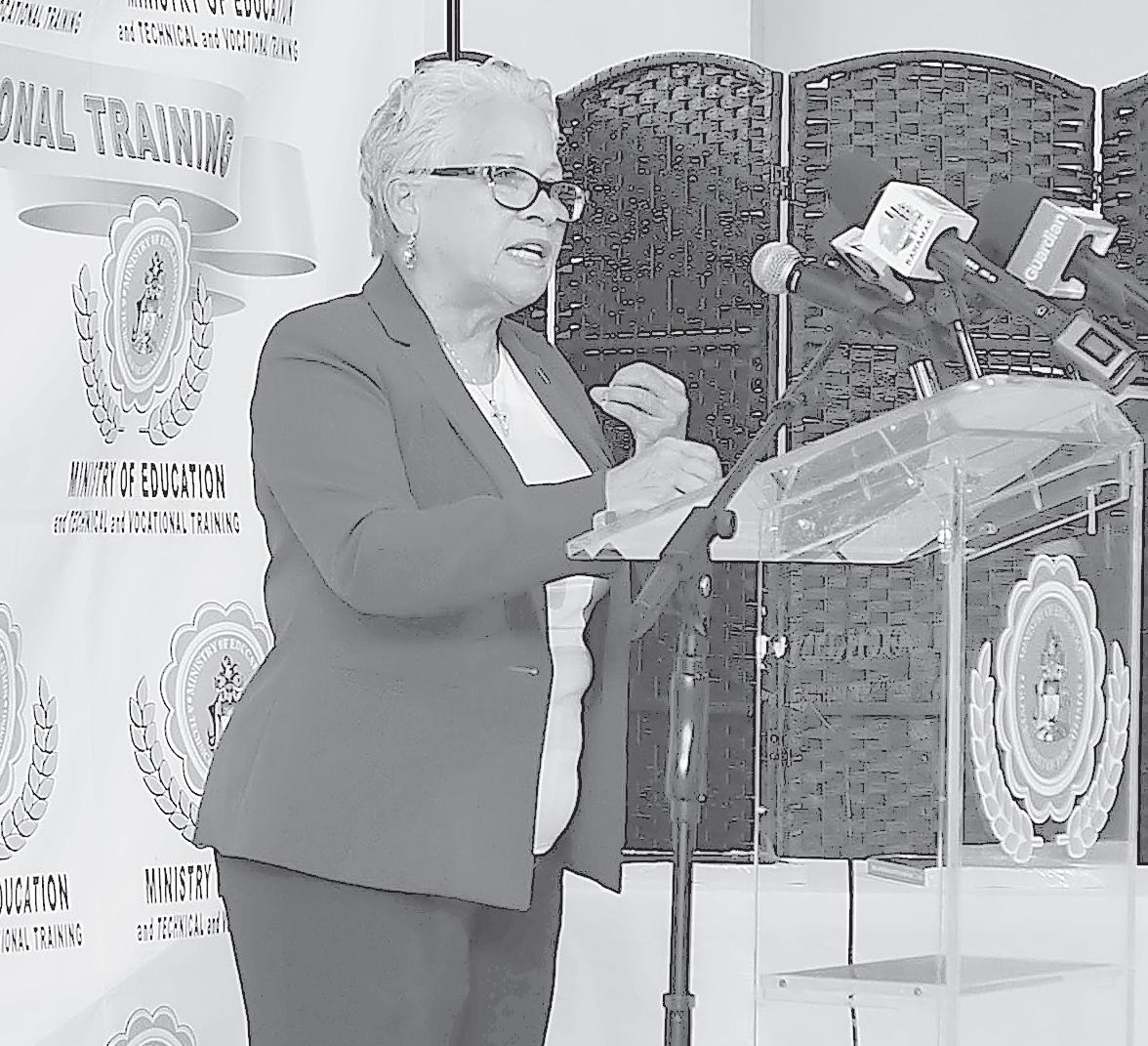
By EARYEL BOWLEG Tribune Staff Reporter ebowleg@tribunemedia.net
THE Ministry of Education has launched a new high school history textbook, Towards a Common Loftier Goal, replacing material last updated more than 40 years ago.
Written by Bahamian educators and historians, the book introduces inquiry-based learning aligned with the national curriculum and covers the country’s full historical arc—from early African civilisations to colonial and post-independence periods, major social and cultural milestones, and island-specific achievements.
Education Minister Glenys Hanna-Martin said the text is vital to helping students understand both the struggles and triumphs of the nation.
“The history text, as you’ve heard, written by Bahamians, published by a Bahamian publisher,” she said.
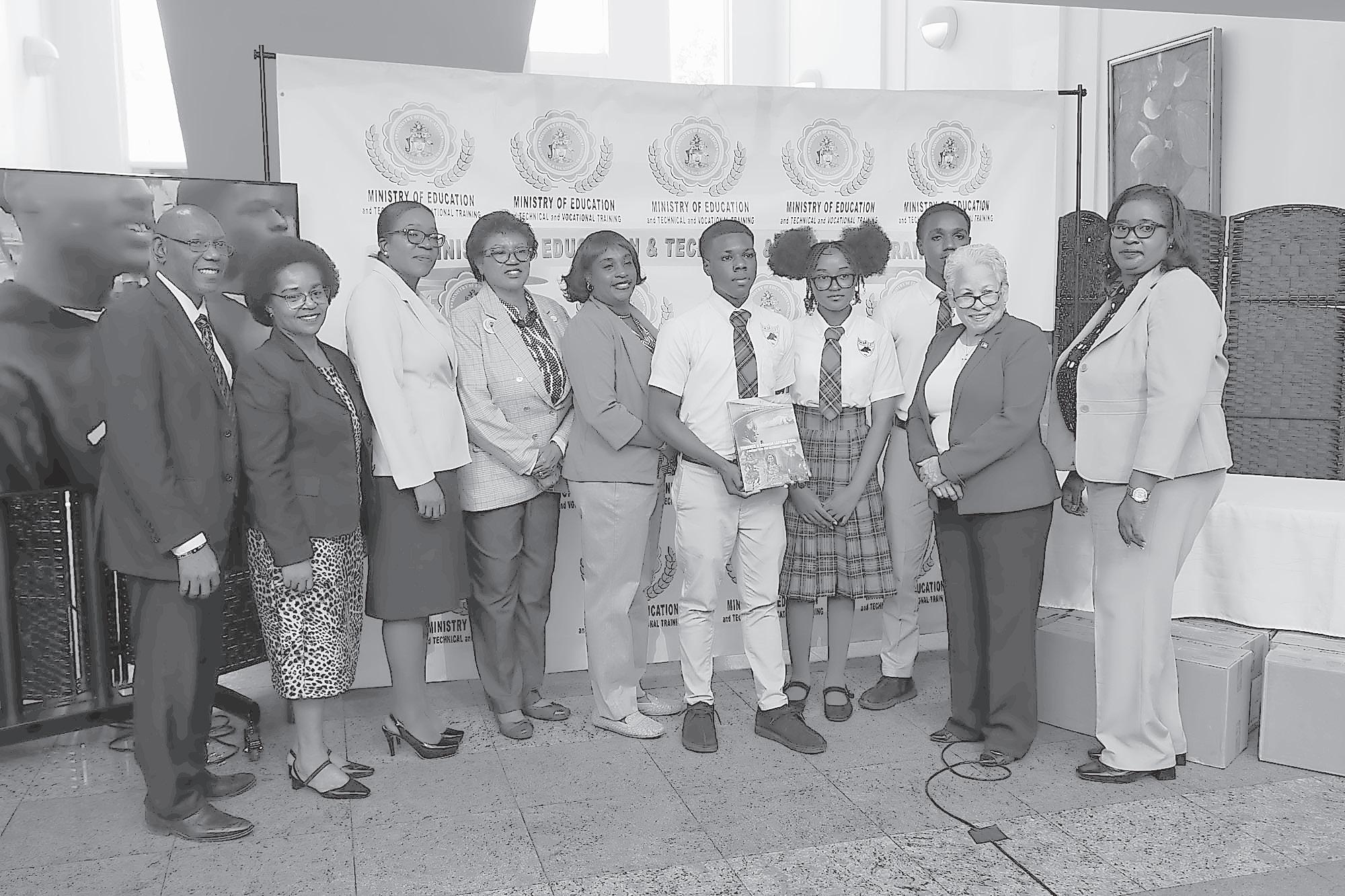
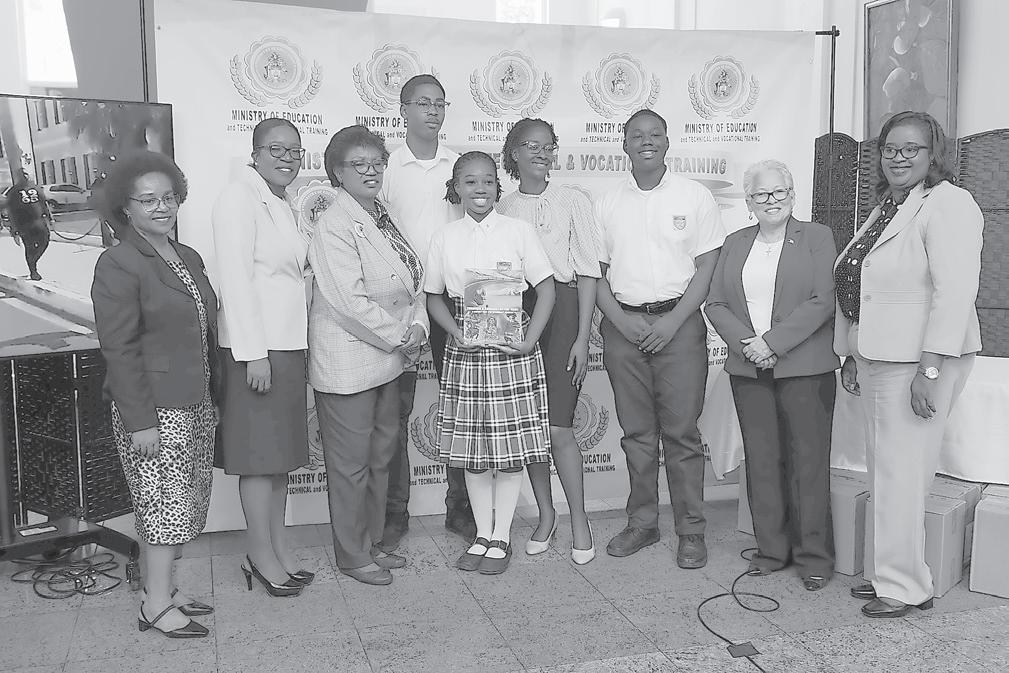
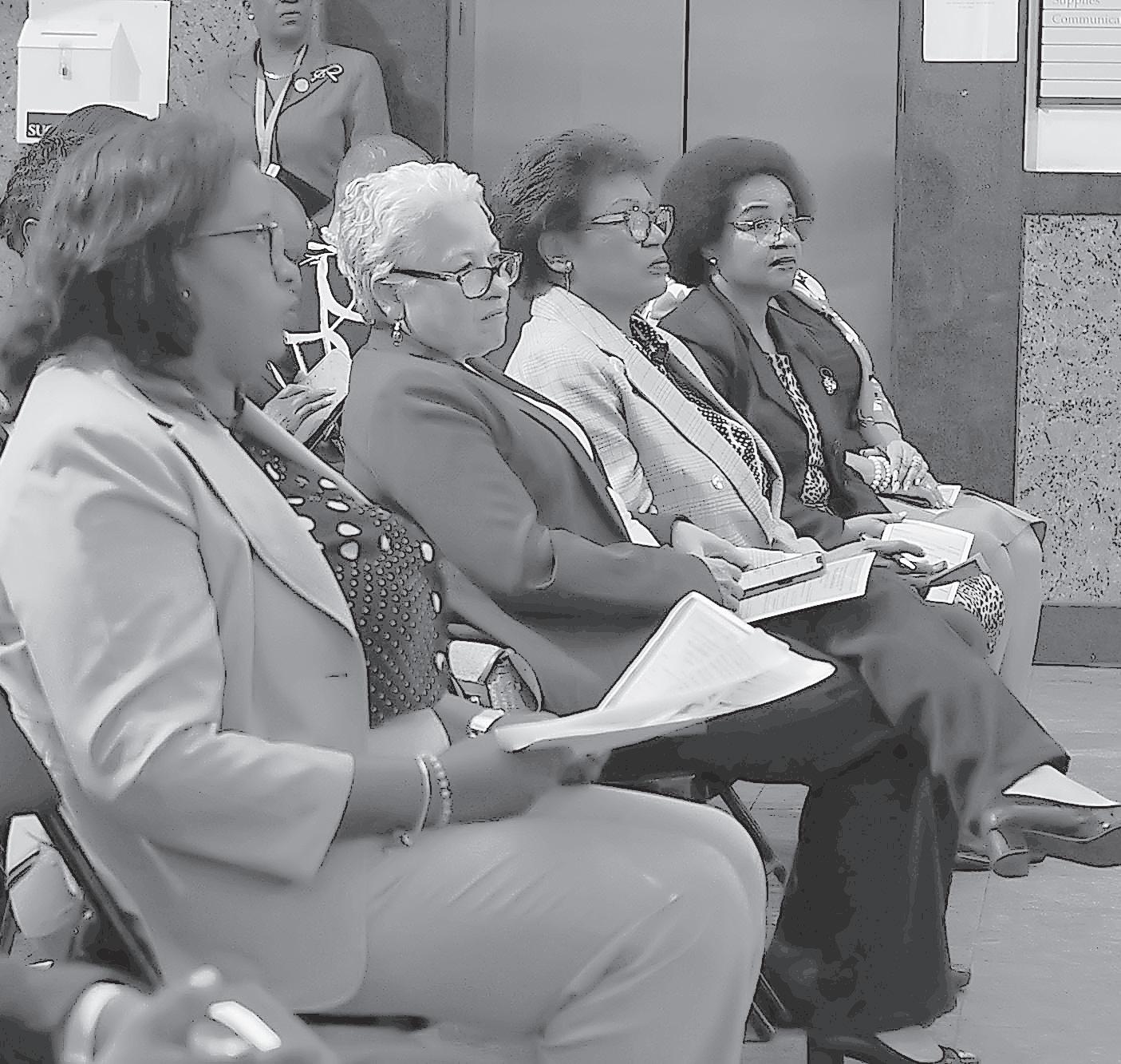
“This is very important, because we have to cause for our young people to have a sense of understanding of where they have come from, whence they have come. This gives a continuity of understanding of the journey of how where we have come from and where we’re going. We want our young people to stand tall and understand that they are kings and queens. The best is yet to come, trust me, the best is yet to come.”
The book incorporates primary and secondary sources, graphics, maps, critical thinking questions, and exam-aligned assessments developed by classroom teachers.
Officials said the updates are designed to make lessons more engaging and to link study to real-world experiences.
District Superintendent Jerome Forbes, who oversees Mayaguana, Inagua, Crooked Island, Acklins, and Long Island, said the resource will allow teachers to connect lessons with field trips.
“While in Cat Island we would have weeks that we take the students out on display of plantations where they will look at some of the drawings on the wall in the ship drawings. Having this textbook will be more formalized now. They can now read about it in the book and then go on the field trip to see what they were talking when the writers wrote it. So it’s really awesome that we can do that,” he said.
CR Walker High School student Darnell Ferdinand, who is in the 12th grade, said the update is long overdue.
“I actually feel amazing about it, because being a history student, it has been the curriculum sometimes is difficult to follow, but seeing that it’s being updated, it’ll make history more intriguing and more exciting for other students to learn,” he said.
Copies of the new textbook have already been distributed to schools across The Bahamas.
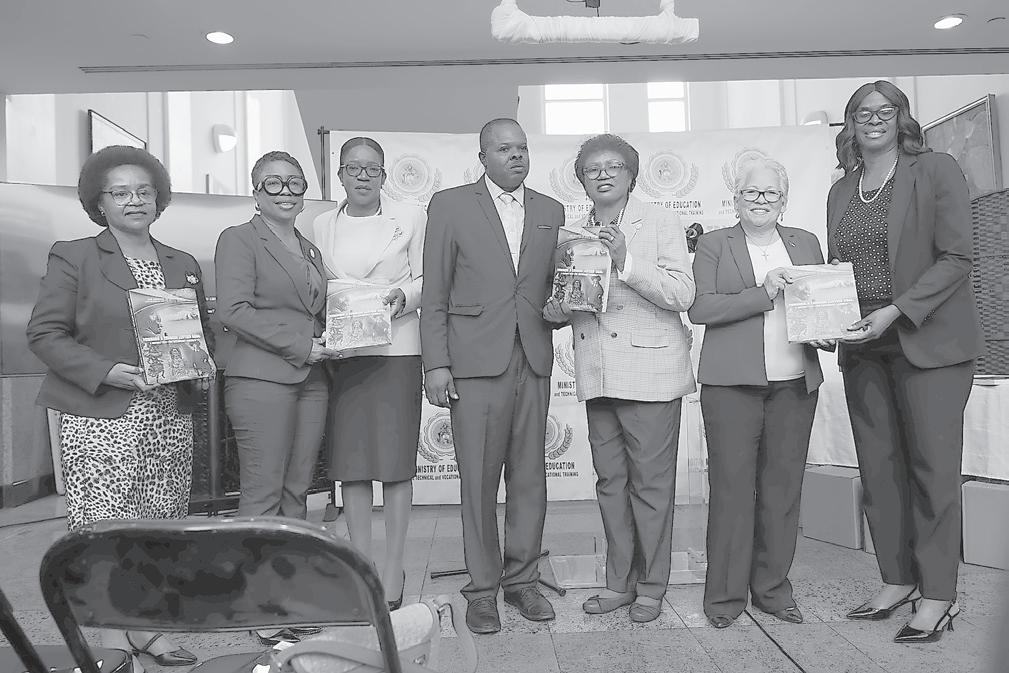

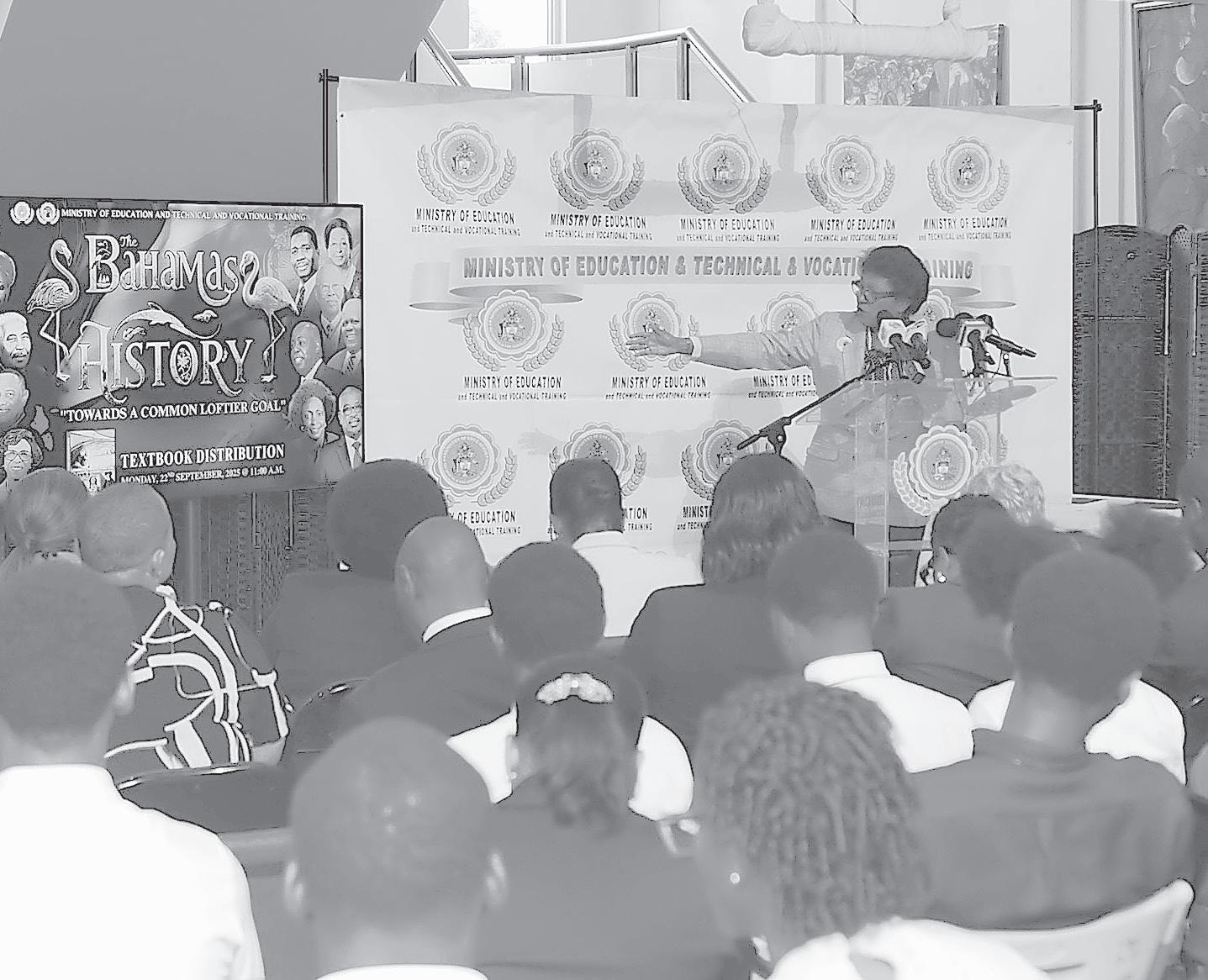
DECEPTIVE from page one
members to “stand by” as action is coming.
Bahamas Nurses Union (BNU) president Muriel Lightbourn said she is still unclear whether any nurses will benefit, noting that those directly employed by the Public Hospital Authority have already been told they will not receive the increases.However, others, including some in senior positions at the Department of Health, are unclear about their situation.
“They gave those persons in June who they deemed middle managers they would’ve given them some monies but we have nurses who are managers as well like our nursing officers and they weren’t given any monies so everybody was asking and nobody got any concrete information,” Ms Lighbourn said. Their comments came after the government announced on Sunday that public servants who missed earlier pay raises will now receive them in December, not this month as previously planned.
The increases will be retroactive to September, with each employee receiving at least two salary increments, though the size of the increases will vary by category.
Public Service Minister Pia Glover-Rolle said the exercise, which she described as a Ministry of Finance project, is intended to narrow gaps in public service salaries and improve conditions for workers.
She noted the government has been increasing salaries since taking office, adding that there had been no public service pay increases since 2016.
She could not comment on the project’s cost or the reason for the late payments, directing such questions to finance officials.
Government officials said the payments were delayed because the exercise was “complex”.
Yesterday, Mr Ferguson expressed shock at the remarks, calling it impossible for Ms Glover-Rolle
to blame the Ministry of Finance while feigning ignorance after praising the government’s salary review in the House of Assembly.
“We are of the view that the government is trying to have a one up on unions and cause the workers of this country to see unions as irrelevant,” he said.
He recalled Prime Minister Philip Davis’ earlier pledge of two to eight percent pay raises for lower-level staff, but said the government’s latest announcement lacks key details.
He said unions have received no clarity on the exact amounts or which categories of workers will receive the promised two to eight percent increases, despite earlier meetings with Prime Minister Davis, who had promised to provide the details.
He also highlighted disparities in past increases, noting permanent secretaries received tens of thousands in salary and allowances in 2022, while mid-level managers and lower-level staff received far less.
He questioned what lower-level staff, such as security officers, messengers, and janitorial workers, would receive.
“Where is the parity in these salaries?” he said. “Well, I don’t see any gap being closed if the person at the lower end is now going to receive and let me use the support staff and the security officers, whose incremental value is $37.50 and so if they get two increments, it would amount to some $75 additionally per month.”
He said the union is concerned that workers are being “slighted” and called the government’s delay in providing the payments a “slap in the face”.
He said the union would have recommended paying lower-level staff first, who needed funds to help their children prepare for back-to-school.
He added that many public servants had already counted on the funds and borrowed money in anticipation of receiving them today.
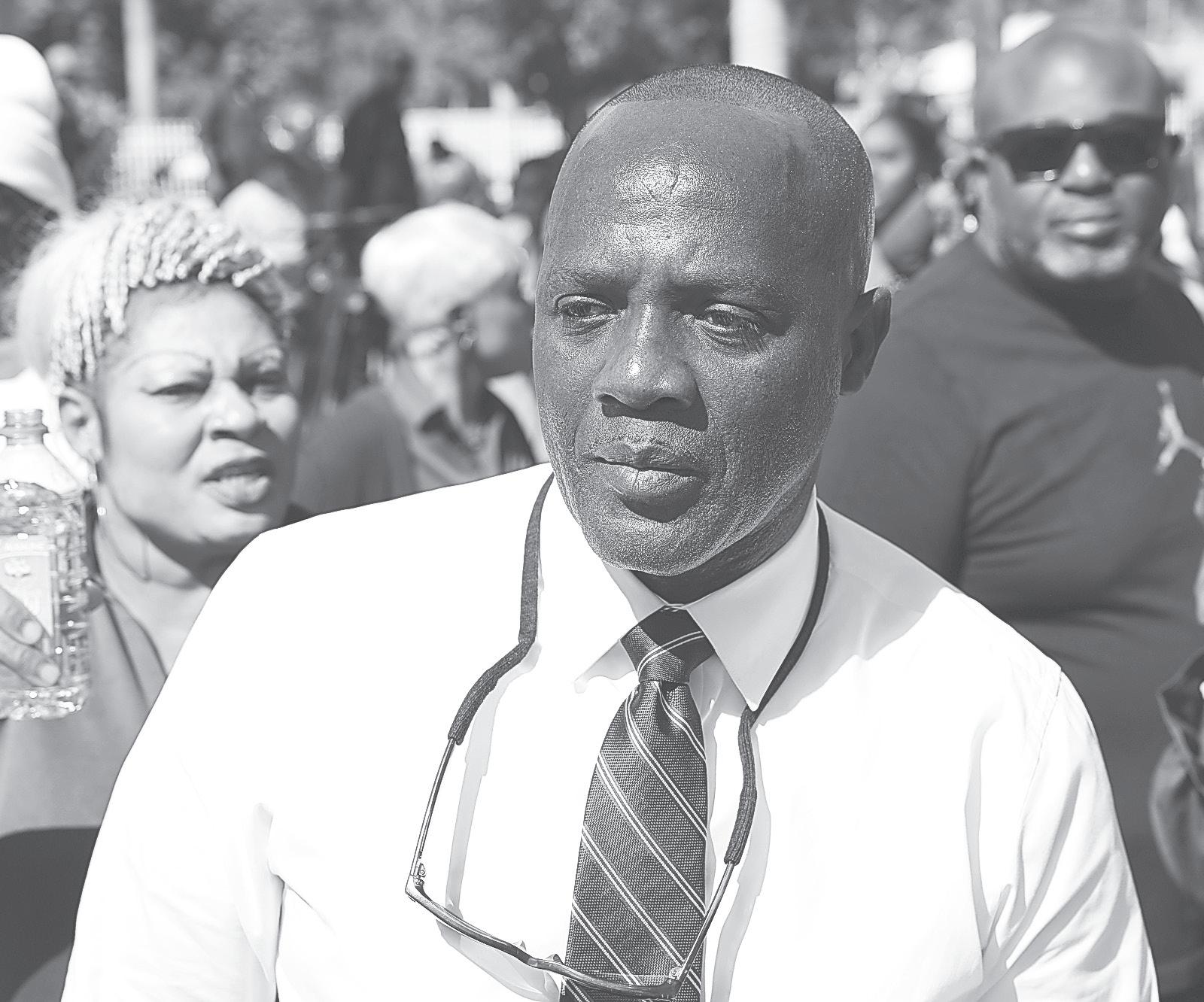
“We are disappointed,” he said, “and I want to say to my members, these are the same persons that are going to knock on your door and ask for your support. My advice is treat them the way they treated you.”
Meanwhile, BEMU called the government’s latest announcement a direct contradiction of the Prime Minister’s earlier statement that salary adjustments would reflect the responsibilities of all public workers.
BEMU, which represents managers and supervisors, noted that many of its members hold advanced qualifications and occupy posts with greater responsibility than middle managers, yet were excluded from the increases granted to that group in June.
“It is unclear how the minimum of two salary
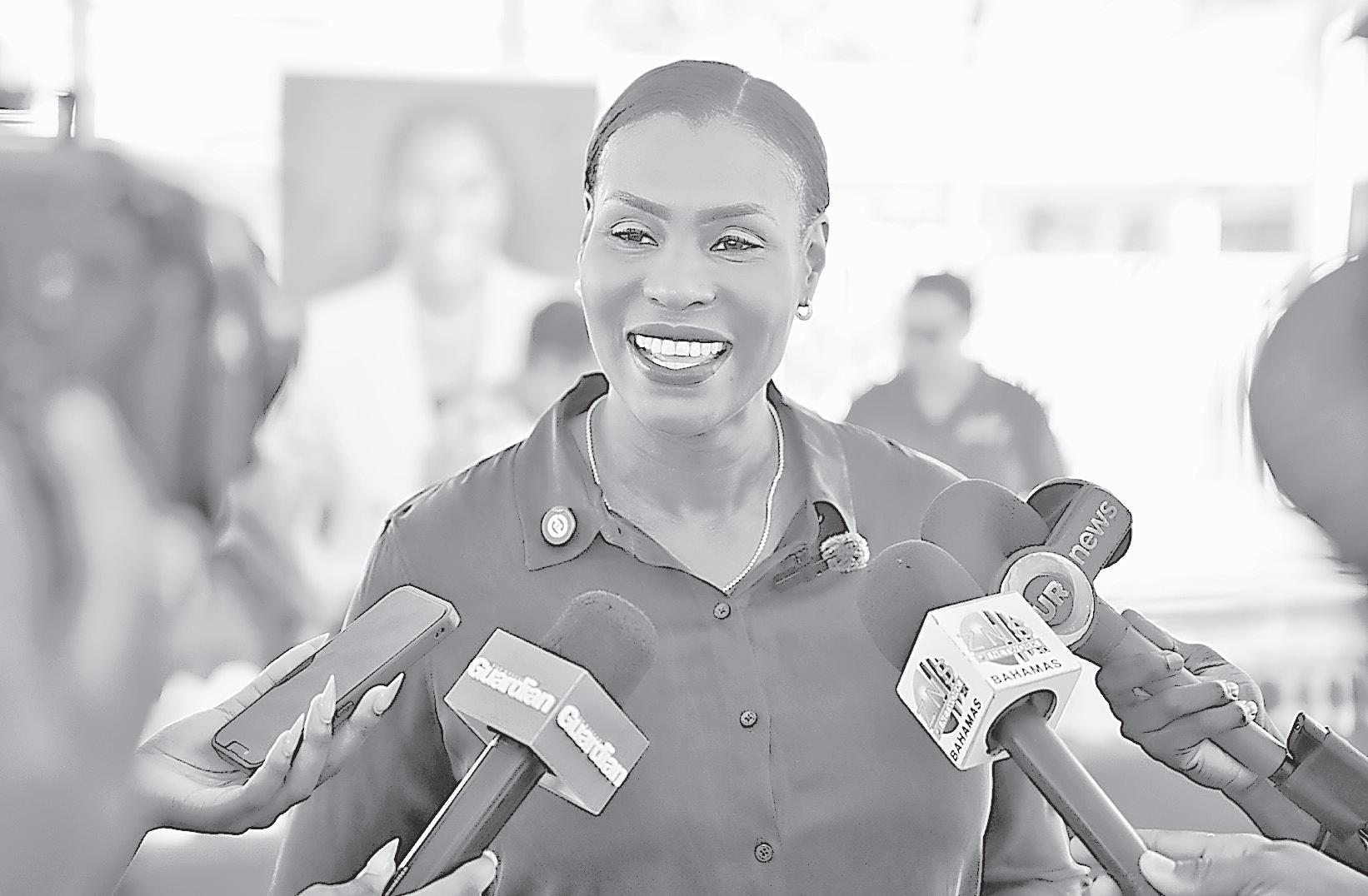
CANCELLED from page one
Wilson during a recent meeting that the reform would not happen since union leaders opposed it.
“That was his words,” he said during a press conference yesterday. His comments came after Labour Minister Pia Glover-Rolle directed questions about the pay reform to the Ministry of Finance, describing it as a “finance project”.
She acknowledged a recent meeting with unions and told reporters to seek
further information from the ministry. The Davis administration had announced last year that biweekly pay would be introduced in early 2025, saying the move would provide public servants with more consistent cash flow between pay periods. However, the timeline was repeatedly extended for further consultation after union leaders expressed shock and opposition.
Despite this, Mrs Glover-Rolle had repeatedly emphasised that the postponement does not
indicate the government has changed its position. In January, she said the Ministry of Finance launched a survey to gauge public feedback, which it said showed most respondents supported a semi-monthly payment system.
However, some union leaders said their survey results told a different story. Bahamas Union of Teachers (BUT) president Belinda Wilson cited a previous survey showing that 83 percent of BUT members wanted to keep monthly salary payments.
increments will be applied in cases where inequities already exist nor is it clear how fairness will be achieved for those who have long served in senior posts with specialised
responsibilities,” the union said in a statement.
BEMU called for a clearer explanation of the adjustments, saying members deserve to know how they will be affected and
how the process aligns with previous commitments.
“Until such explanation is provided, serious concerns about fairness, transparency, equity will remain unsolved.”

NULLIUS ADDICTUS JURARE IN VERBA MAGISTRI
“Being Bound to Swear to The Dogmas of No Master”
LEON E. H. DUPUCH
Publisher/Editor 1903-1914
SIR ETIENNE DUPUCH, Kt., O.B.E., K.M., K.C.S.G., (Hon.) LL.D., D.Litt .
Publisher/Editor 1919-1972
Contributing Editor 1972-1991
RT HON EILEEN DUPUCH CARRON, C.M.G., M.S., B.A., LL.B.
Publisher/Editor 1972-
Published daily Monday to Friday
Shirley & Deveaux Streets, Nassau, Bahamas N3207
TELEPHONES
News & General Information
(242) 502-2350
Advertising Manager (242) 502-2394
Circulation Department (242) 502-2386
Nassau fax (242) 328-2398
Freeport, Grand Bahama (242)-352-6608
Freeport fax (242) 352-9348
WEBSITE, TWITTER & FACEBOOK
www.tribune242.com


THE latest in a series of decisions on immigration to the US was announced on Friday – a $100,000 fee on H-1B visas.
These visas have been around since 1990, and are used to bring in people with skills that are hard to find. In practice, this allows employers to hire workers who have specialised skills and a degree or the equivalent, and they last for three years, and can be renewed for a further three years.
And suddenly all those people –around 700,000 in the country – have questions about what is going to happen with their visas.
These are workers in the computer sector – about 60 percent of visas issued since 2012 – but also hospitals, banks, universities and more.
Previously there has been a fee –an application fee, of $215 plus some processing charges. Now the fee is $100,000. Needless to say, that’s going to put a hole in lots of business budgets.
The Commerce Secretary said the fee would be annual – totalling $600,000 over the maximum period.
The White House said on Saturday it was a one-time fee, and won’t affect current visa holders.
The announcement has caused some considerable amount of chaos. The fee may not affect current holders – but it will certainly affect business planning.
But to quote the famous military strategist Sun-Tzu, in the midst of chaos, there is opportunity.
This new announcement may not affect current visa holders, but the demand for those skills is not going to go away – nor is the demand from those with the skills to seek opportunities.
So if the demand is there, and the applicants are there – is there a chance for The Bahamas to offer an offshore solution?
Think of all that skilled labour, coupled with investment from US companies who need those skills, and put it together with, say, Grand Bahama.
Keith A Roye II, of Plato Alpha, argues the case in today’s Tribune Business for opening the door to that talent – offering The Bahamas as a
nearby place to relocate to or to set up offshore facilities.
“Absolutely 100 percent we should look at it,” said Mr Roye. “We can look at that to facilitate this whole technology hub scenario that we’ve been trying to grow here.”
He added: “We are obviously a ripe market for companies wanting to set up in The Bahamas. We have the great advantage of being close to the US while also allowing people to enjoy the lifestyle – sun, sand and sea – that The Bahamas has to offer. In the technology space, it’s very easy to work remotely.”
About three-quarters of applicants approved in 2023 were from India – with one recruiter in India’s Punjab state, Navneet Singh, warning: “Countries like France, Netherlands, Germany and Canada are set to gain from this move.”
The dean and vice provost at Cornell Tech, Greg Morrisett, said Cornell Tech has launched about 120 start-ups with the “vast majority” having students coming from overseas who will, he says, “pick up and move to Europe or Asia, wherever they can find”.
He added: “We saw this when, for example, you know, Ireland made it really attractive from a tax perspective. All of a sudden all the headquarters move to Ireland.”
If those countries can do it, why can’t we?
We are the same time zone as the East Coast, we have beautiful surroundings to work in and, with perhaps some of those extra funds thrown in to stabilise our power and internet services, we could be a near neighbour offering a home to those skilled people needed in the US.
As ever with some of these announcements that have been made, such as the ever-shifting tariffs, there is the chance that it will all be overturned.
But why not offer ourselves as a home for the talented anyway? It requires thinking of immigration differently ourselves – but it might just be an opportunity that could fire life into Grand Bahama for starters.
EDITOR, The Tribune.
WE talk often of national pride and our unique culture but how serious are we? It is so very upsetting to look at the flamingo figure on the roundabout at JFK and Baha Mar Blvd.
While I have an appreciation for abstract art, in my opinion, it should not play a part in depicting a National symbol. There are a time and place for abstract art. Unless there is a new secret breed that we do not know about, there is no blue in a flamingo and I feel it is very important
that when we exhibit our national symbols, they be a true likeness so that they are recognised for the significance they hold. By jungle, not even the Junkanoo groups with all their pomp and pageantry have ever displayed the flamingo with blue streaks. Mr Minister of Tourism and Mr marketing director of Baha Mar, please have this atrocious looking flamingo redone/painted in its correct shades of pink and coral. It is an insult to our national symbols and does not give a true representation of the flamingo. The
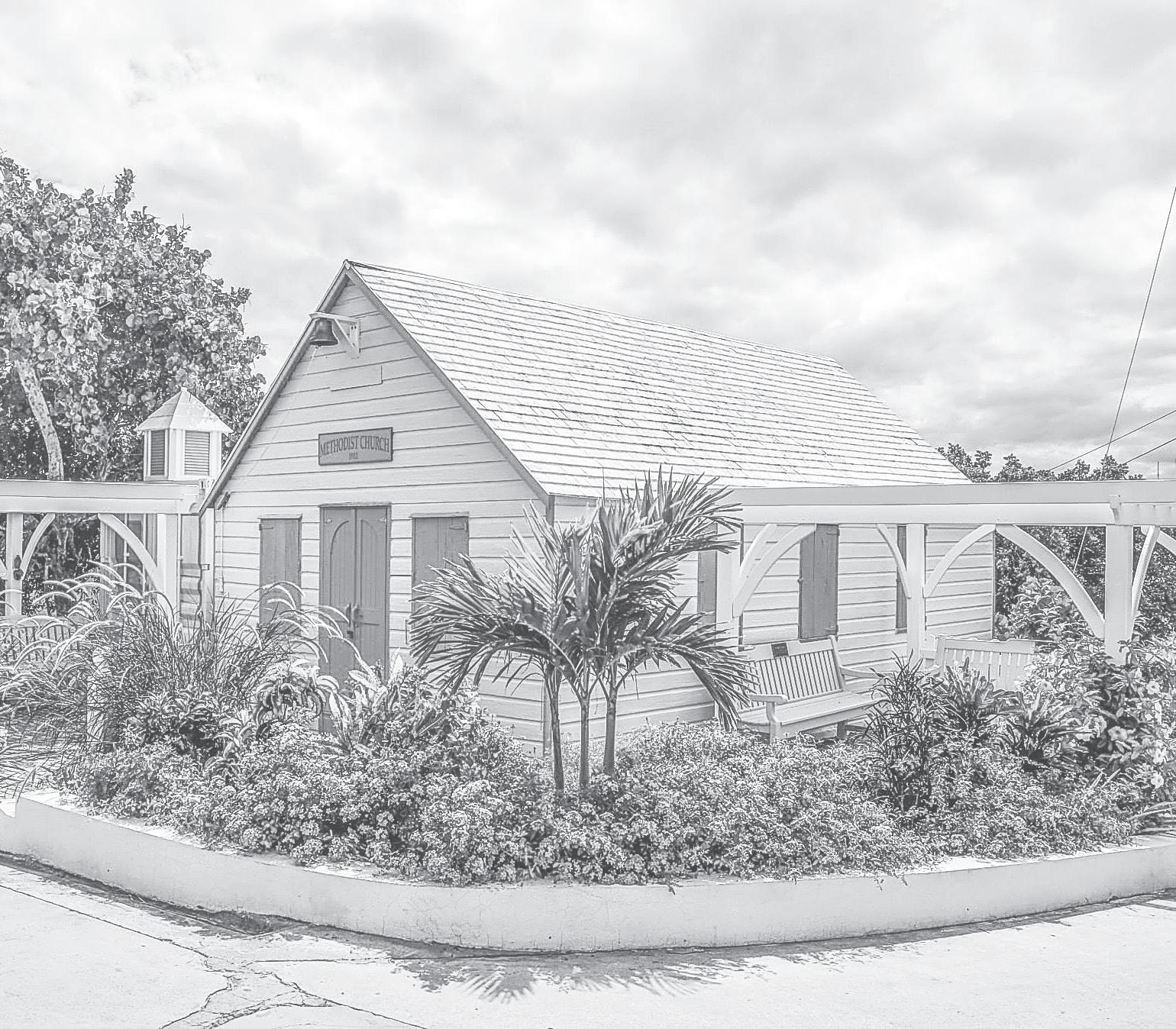

EDITOR, The Tribune.
THE revelation by The Bahamas Crisis Centre that 180 children, aged between two and 17, were referred for sexual assault over the past eleven months should shake this nation to its very core. These are not faceless statistics; they are our children. Each case represents a young life scarred, a childhood stolen, and a family left carrying wounds that will not easily heal. Equally disturbing is that once these matters enter the justice system, children and their families are forced to wait three to five years for resolution. For a child, that is not only intolerable, it is cruel. No survivor of sexual violence should have to endure years of retraumatisation while their case sits on hold in the courts. Justice delayed is justice denied, and in these cases, it is children who pay the price. We cannot afford to delay or make excuses. The justice system must be reformed to become truly child-centred, beginning with standardised videotaped testimony so victims are spared the torment of retelling their ordeal again and again in intimidating courtrooms. Real protections must also be put in place for whistleblowers
and family witnesses, whose silence too often comes from fear or shame.
Above all, child sexual abuse cases must be fasttracked, because nothing is more urgent than safeguarding the innocent.
Perpetrators must be prosecuted and punished to the fullest extent of the law so they are not back on our streets to offend again. Protecting the identity of victims is essential, but that protection must never become a shield for predators. Too often, withholding names in the name of privacy has the unintended effect of protecting offenders while communities remain unaware and at risk. Our priority must be the safety of children, not the comfort of those who prey upon them. Regrettably, in many cases, the offenders are relatives, church and community leaders, family friends, and other trusted adults, the very people who should be protecting children.
This crisis demands courage. It requires decisive action. Most of all, it calls for a nation that refuses to look away from the
predators in our midst.
The true measure of any society is how it safeguards its most vulnerable. Right now, The Bahamas is failing that test.
I therefore call on the government to table meaningful reforms in the very next sitting of Parliament. We cannot continue to push this issue to the back burner while our children remain unprotected. The time for reports, promises, and delays is over. What is required now is legislation, enforcement, and leadership equal to the scale of this crisis.
Our children cannot wait another year, another month, or another day. They deserve protection. They deserve justice, and they deserve leaders who will not turn their backs on them.
Let me repeat myself, no matter how complicated the world gets, children should have safe neighbourhoods where they can grow up unharmed, secure and healthy, and develop to the maximum extent of their potential in a Bahamas for all Bahamians.
SENATOR MAXINE SEYMOUR
Shadow Minister for Social Services, Information & Broadcasting September 22, 2025.
Crown Pigeon, the Rooster and that beautiful Conch Shell depict the true likeness of same and they are a joy to look at. Let us take pride in what we display. We never seem to get the colour of our flag correct and display all shades of blue and yellow due to an oversight in copyrighting our aquamarine and gold, but let’s not mess up our National symbols by creating a “New Bird”. Please fix the flamingo.
VANESSA A SCOTT, JP Nassau, September 18, 2025.
All is not well in the classroom
EDITOR, The Tribune. THERE are some who like to talk about learning loss. Well, I’m here to talk about learning interrupted. Those times when particular students become unruly and disruptive during class time. Those times when they’re in continual talking mode, even after being told to be quiet repeatedly. Those times when they refuse to do what the teachers told them to do. Yes, bottom line, when they’re undisciplined and can’t be disciplined because the teachers in
their classrooms have lost their power to do so as those at the Ministry of Education are stuck with their heads in the sand pretending that all is well. My God, I hope they don’t truly believe it is.
Minister Glenys Hanna Martin and your team, all isn’t well. No matter how you’re pretending it is. Students act out and teachers can’t spank or keep the children in at lunch or break time. And having inept administrators only exacerbates the problems. If they can’t discipline,
then what can they do?
Teachers have to sit there and take it. Little Johnny, Little Mary, knows the teachers have no power to stop them and continue on with their classroom interruptions. Continue on as the ministry, to my knowledge, has no effective discipline plan. Continue on as administrators have no effective discipline plan. Yes, continue on. All is well, huh?
SO, THIS IS LIFE, HUH?
Nassau, September 19, 2025.
T he case will proceed to the Supreme Court via a voluntary bill of
indictment (VBI). He must apply for bail in the higher court. Williams was remanded to the Bahamas Department of Correctional
Services until his VBI is served on January 20, 2026. Assistant Superintendent of Police K Bould prosecuted the case.
By PAVEL BAILEY Tribune Staff Reporter pbailey@tribunemedia.net
A MAN was remanded to prison yesterday accused of raping a 19-year-old woman at a residence on Charles Saunders Highway last week.
Police alleged that
Christopher Bain, 49, raped the woman around 6pm on September 14. The alleged victim reportedly knew him.
Bain was charged with rape before Magistrate Abigail Farrington. He was not required to enter a plea.
The case will proceed to the Supreme Court via a
voluntary bill of indictment (VBI). He must apply for bail in the higher court. Bain was remanded to the Bahamas Department of Correctional Services until his VBI is served on January 20 2026. Assistant Superintendent of Police K Bould prosecuted the matter.
By PAVEL BAILEY Tribune Staff Reporter pbailey@tribunemedia.net
TWO men were remanded to prison yesterday after being accused of attempting to kill two others in a drive-by shooting near Flamingo Avenue last week.
Police alleged that Ampherney Riley, 20, and Kenmario Lewis shot and injured Marvin Hawthorne and Shamar McLeish as they were driving around
5.15pm on September 14. The suspects were reportedly in a burgundy Japanese vehicle. Mr Hawthorne was last listed in serious condition in the hospital with gunshot wounds to the abdomen.
Riley and Lewis were charged with two counts of attempted murder and two counts of possession of a firearm with intent to endanger life before Chief Magistrate Roberto Reckley.
They were not required to enter a plea. The case will proceed to the Supreme Court via a voluntary bill of indictment (VBI). They must apply for bail in the higher court.
The men were remanded to the Bahamas Department of Correctional Services until their VBI is served on December 4.
Inspector Deon Barr prosecuted the case, while Bjorn Ferguson and K Melvin Munroe represented the accused.
By PAVEL BAILEY Tribune Staff Reporter pbailey@tribunemedia.net
A MAN was sentenced to six months in prison yesterday after admitting to breaching his bail while awaiting trial for an armed robbery charge.
Police said Joshua Duncanson, 23, failed to obey his court-ordered curfew for eight days between
September 1 and 18 in New Providence. He is awaiting trial on charges of possession of an unlicensed firearm, possession of a firearm with intent to endanger life, attempted armed robbery and conspiracy to commit armed robbery in connection with the alleged holdup of the Budget Meat store in September 2022.
Last August, Duncanson was fined $1,000 for a previous bail breach. He pleaded guilty to his latest bail violation before Magistrate Lennox Coleby and was sentenced to six months at the Bahamas Department of Correctional Services. Assistant Superintendent of Police Lincoln McKenzie prosecuted the case.
Simplified donates car for police welfare fund raffle
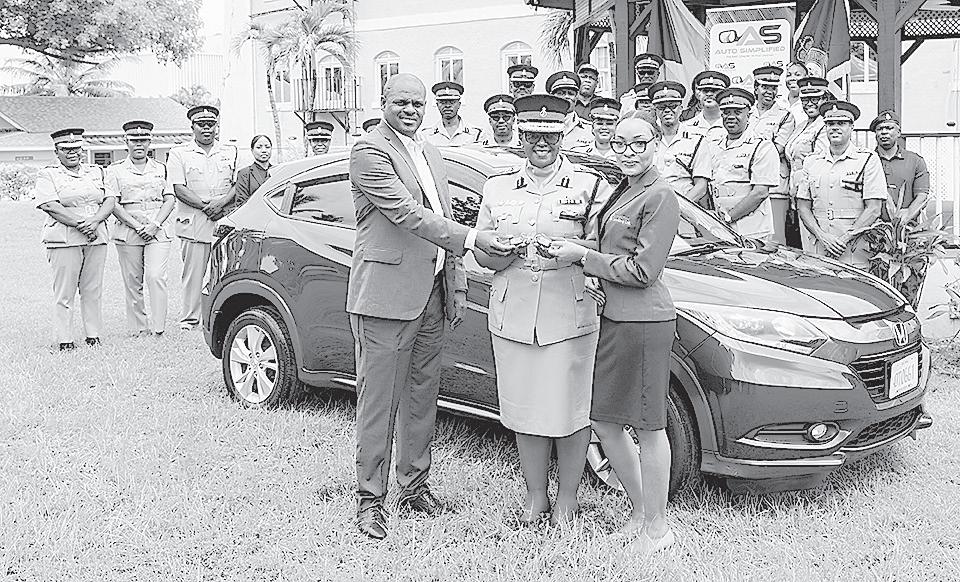
AUTO Simpli-
fied, a division of the Simplified Lending Group, has donated a hybrid Honda to the Royal Bahamas Police Force (RBPF) for a raffle to benefit the police welfare fund. The fund provides assistance to officers facing medical or personal hardships.
Police Commissioner Shanta Knowles accepted the keys to the vehicle, calling the donation “truly amazing.” She emphasised the importance of supporting the men and women who serve the country daily.
Robert Pantry, CEO of Simplified Lending, said the donation was a way for the company to give back to the community, echoing his belief that it is only fair to assist the police when they are in need. The raffle will be held on Saturday, October 4, at the Police Training College.

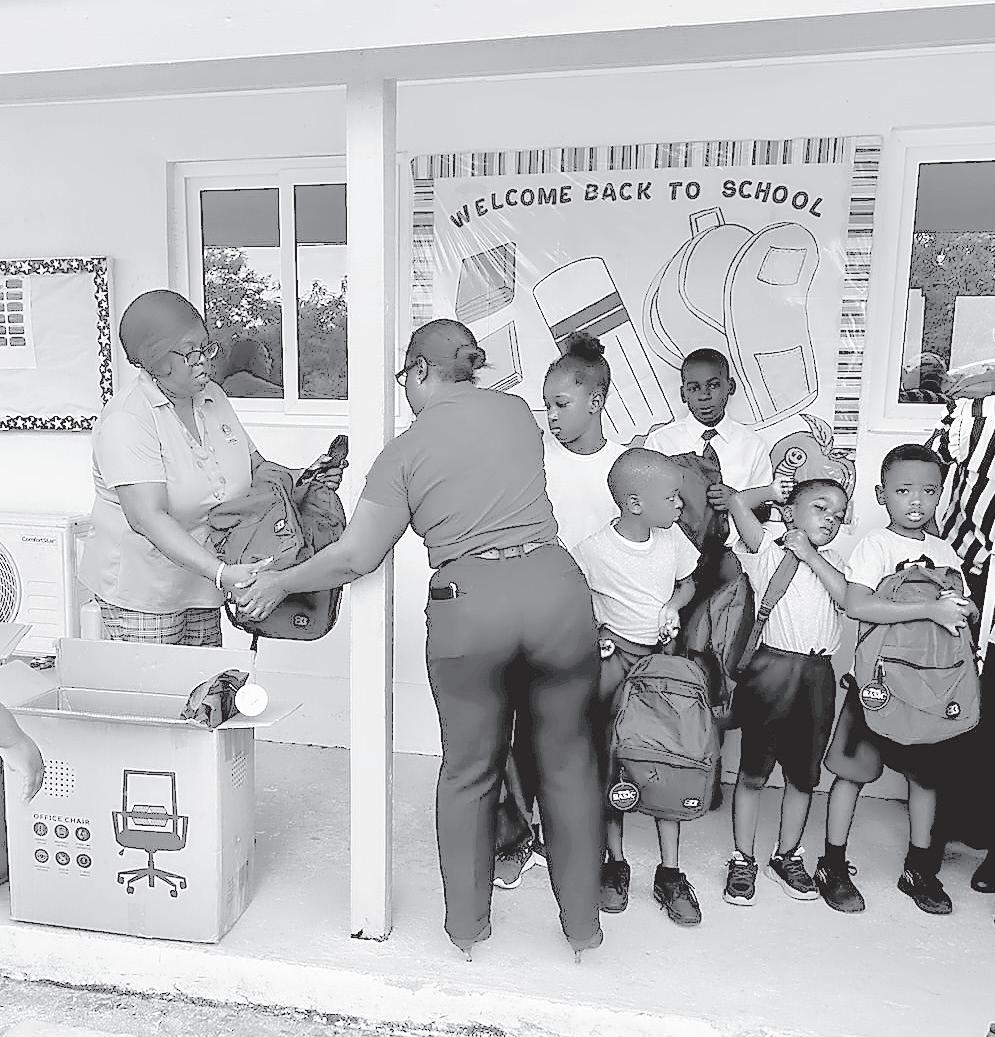
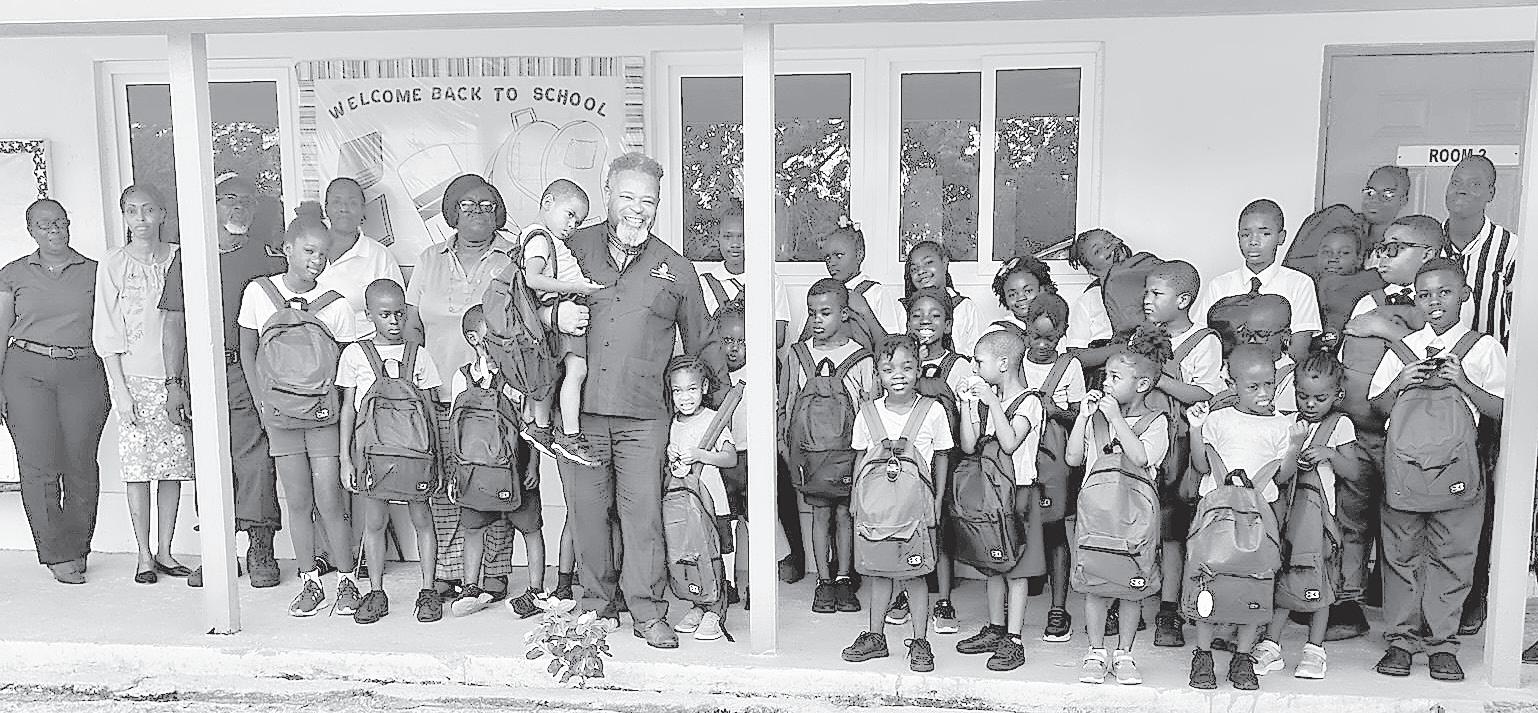
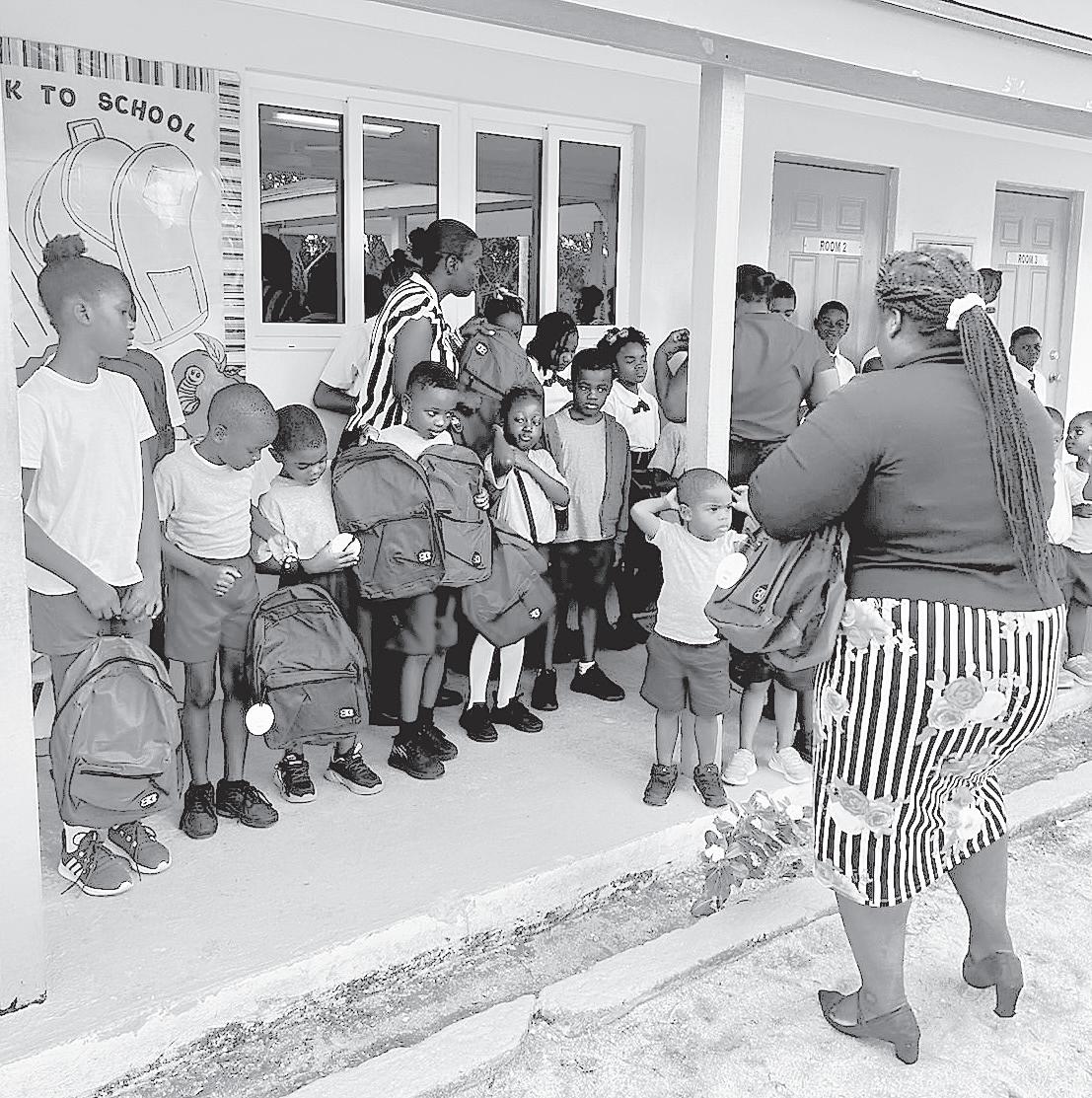

IN THE Bahamas, we are quick to condemn. We wag our fingers at those who drink, casting them as reckless and irresponsible. Yet, many of us do the very same thing. We gather at our watering holes, ordering shot after shot until our speech slurs and our steps wander.
When our behaviour slips into the unorthodox or the shameful, we laugh it off with the familiar excuse: “Blame it on the rum.” Many hide behind the bottle to mask who they are. They lack the courage to be honest, so they drown their feelings.
Teddy Pendergrass said: “You can’t hide from yourself, everywhere you go, there you are”.
The hypocrisy is striking. We cross moral lines in plain sight, and society shrugs. The indulgence is excused, even normalised. But the damage rarely ends at the bar counter. When the drunkenness follows us home, we often return not as fathers or husbands, but as shadows of ourselves, unable to fulfil the roles our families need. The wives and children left in our wake quietly shoulder the consequences of our indulgence.
What’s worse is that this cycle is not only tolerated but protected. Our judgments are skewed. A neighbour’s public misstep draws ridicule, yet a well-known “upstanding” figure’s destructive habits are covered with silence. We know. We condone. We protect by refusing to speak. And in that silence, real harm festers, mental, emotional, and generational.
The phrase “mum’s the word” may sound harmless, but in our culture, it is a tool of protection against damaging behaviour. By keeping quiet, we preserve appearances while sacrificing truth. When truth is suppressed, families break, communities weaken, and cycles of dysfunction repeat.
It is time we confront our contradictions. We cannot condemn with one hand and indulge with the other. We cannot pretend that silence is neutral. It is complicity. Until we demand honesty, accountability, and change, we will remain trapped in the very behaviours we excuse.
For too long, the language of moral certainty has been used to draw a circle and kick people out of it. “Values”, “tradition,” and “the right way” become mortar for a wall that claims to protect society while it really protects fear. It is astonishing how easily faith, supposedly a sanctuary, can be converted into a weapon of exclusion, wielded against children, neighbours, co-workers, and friends whose lives don’t match a particular image of normal. The result isn’t just awkward conversations at family gatherings; it systematically damages lives, psyches, and communities. At the heart of this exclusion lies a dangerous claim: that God hates people who are different. That assertion is both theologically bankrupt and morally corrosive. If God is the source of love, then God’s love is, by definition, not parcelled out in neat, ideologicallyapproved portions. To say otherwise is to take the concept of the divine and shrink it to the size of human prejudice. It turns the sacred into mere cultural baggage. What’s more, the people who point fingers in daylight are often the same people who practice the very behaviours they


IVOI NE INGRAHAM
denounce when the lights go out. We know this not because we indulge in rumours but because human beings have always carried private lives that contradict their public pronouncements. Parents who publicly condemn, pastors who preach exclusion, politicians who legislate against differences, many of them, quietly and painfully, live with the same confusions, needs, and desires they publicly vilify. That hypocrisy is not a curiosity; it’s a moral crisis. It undermines trust in institutions, shatters families, and conveys that honesty will be punished.
The consequences are devastating, and they are not abstract. Ostracism is a slow-acting toxin. When someone is made to feel like an aberration, when their identity is treated as a pathology rather than a part of what makes them human, the effects go deep. Rejection from family or community can fracture a person’s sense of self. Those who are told, implicitly or explicitly, that they are sinful, shameful, or unlovable internalize those messages. Over time, shame calcifies into isolation; isolation breeds despair. Imagine being 20, coming to terms with who you are, and finding that the people whose approval once felt essential now treat you like you’ve broken a covenant. Imagine the heartbreak of confiding in a parent and receiving an ultimatum: “Choose me or choose that life.” Now, imagine the power of empathy and understanding in these situations. The emotional toll is enormous. It chips away at confidence, dulls hope, and can lead to anxiety, depression, and, in
too many cases, thoughts of self-harm. This isn’t melodrama. It’s the realistic arc of what happens when people are told they don’t belong. Human beings are social creatures; belonging is food. When belonging is withheld, people starve emotionally. That starvation shows up as loneliness, as attempts to disappear, as risky coping behaviours, as withdrawal from opportunities, and sometimes as anger that has nowhere safe to go. The young are especially vulnerable: adolescence is when identity is being assembled, and rejection at this stage can warp the scaffolding of adulthood. Without support, many of the bright, curious, creative young people who could and should have flourished find themselves hollowed out by shame.
And it is not confined to youth. Adults who live alternative lifestyles— whether that refers to sexual orientation, relationship structure, gender expression, or other forms of selfhood- face similar patterns of rejection. Careers can be curtailed, friendships fray, and faith communities that should be a source of solace become sites of surveillance. The double life some are forced into, public quietness and private authenticity, exacts a heavy price: constant vigilance, fear of exposure, and a sense of living inauthentically. That emotional labour is unrelenting and exhausting. It robs people of the basic joy of simply being themselves. Worse, the stigma is calibrated across strata. Wealth, race, and religious badge-wearing do not immunise anyone from this pattern; they only change its choreography. A wealthy donor who funds exclusionary causes may pay to keep their private life orderly and hidden; an esteemed cleric who preaches separation may visit the same shadows where their desires are indulged. Institutional power can amplify the damage: when schools, workplaces, and governments tacitly support exclusion, they legitimise personal prejudice and complicate recovery.
Conversely, those on the margins, people of colour, people from conservative religious backgrounds, people without resources, often face harsher
If the divine is indeed compassionate, then any faith that teaches hatred in God’s name is a distortion. You cannot claim the mantle of the sacred and then disavow the command to love.
consequences for the same behaviours, experiencing economic hardship, familial estrangement, and social isolation with fewer safety nets.
This hypocrisy and harm painfully intersect with religion. Many faith traditions have teachings that ask us to love our neighbours, to welcome the stranger, and to care for the least among us. Yet some religious adherents have allowed selective readings of scripture to justify exclusion. They have weaponised texts, often out of context, sometimes out of sheer fear, to erect moral barricades. It is one thing to wrestle with theological questions in good faith; it is another to use scripture as a nightstick while ignoring its broader ethical arcs toward compassion and mercy.
Theologically speaking, love that excludes is a contradiction. If the divine is indeed compassionate, then any faith that teaches hatred in God’s name is a distortion. You cannot claim the mantle of the sacred and then disavow the command to love. And love is not a vague, sentimental word; it requires concrete actions: listening, bearing witness, offering support, and, yes, sometimes saying “I was wrong” when our assumptions hurt another person. To insist that God’s love is conditional on conformity reduces an infinite mystery to a narrow human preference. Let’s remember that love is not just a feeling, but a powerful force that can heal, unite, and transform our communities.
So what would widening the tent look like in practice? First, it requires honesty. Parents, religious leaders, and communities who have relied on public
shaming to enforce conformity must reckon with the damage they’ve done. That means acknowledging hypocrisy, apologising where necessary, and ceasing the use of moral panic as governance. Instead, it means creating spaces where questions can be asked and people can be loved without relinquishing their integrity. This is not just a suggestion, but a call to action. It’s time to be honest, accountable, and create a more inclusive and compassionate community. Agree to disagree.
Second, it requires empathy. The impulse to judge often comes from fear of difference, change, and losing status. The remedy is to exchange fear for curiosity. Ask the hard questions, not to trap someone, but to understand them. Sit with stories of real people, not abstractions. When our neighbours’ lives stop being caricatures and become narratives, it becomes harder to condemn them.
Third, communities must take responsibility for mental health. Churches, mosques, synagogues, schools, and civic groups should partner with mental health professionals and be ready to offer nonjudgmental support.
Saying “we love you” is not enough if that love disappears when someone’s identity is revealed. Practical care, counselling resources, peer support networks, and safe-haven policies can save lives.
Finally, faith needs a course correction back to its centre: love.
If religion is to be a force for good, it must prioritise compassion over purity tests. That does not mean all questions are settled or that doctrine is
abandoned. It means that the temperament of faith shifts from condemnation to accompaniment. A community that accompanies does not abandon doctrine; it refuses to let doctrine become a tool of cruelty.
The stakes are not theoretical. Every time a parent refuses to speak to a child, a congregation votes to exclude, or a politician uses difference as a wedge, real human beings pay the price. These are not anonymous casualties of culture wars; they are our sons, daughters, siblings, colleagues whose inner lives and future possibilities are narrowed by our unwillingness to understand.
We could choose another path. We could model what it means to hold convictions without denying people their dignity. We could teach young people that faith, at its best, calls us to love even when it’s difficult. We could be brave enough to admit our imperfections and stop projecting them onto others. We could recognize that authenticity breeds health—not just individual mental health but the mental health of families and communities. The argument that God hates people who are different is a convenient fiction for those who want to avoid discomfort. But it is a dangerous fiction: it sanctions cruelty, excuses hypocrisy, and inflicts wounds that last a lifetime. The better truth, and the more actual practice of faith, is to widen the tent. To welcome does not mean to agree on everything; it means to refuse to make someone’s identity the justification for their exclusion. So let the tent be broad. Let our houses of worship, homes, and communities be places where people can come as they are and be met with honest conversation, steady support, and love. If God is love, loving others, especially those who differ from us, is not an optional add-on to faith; it is its clearest test. The measure of our spirituality is not the volume of our proclamations but the breadth of our compassion. Widen the tent, and we might save each other.
Facing reality, since all have sinned and come short of the glory of God, none of us, absolutely none of us, is qualified to judge anyone, period.
By CAROLINE FREDRICKSON, D irector of the Research D epartment at the International L abour Organization (ILO)
THIRTY years ago, 186 countries met in Copenhagen for the first Social Summit for Social Development. The gathering was the largest meeting of world leaders ever at the time. By the end of the summit, their agenda was clear: the challenges faced by our societies are global and so are the solutions.
In response, governments vowed to put people at the centre of global development. They recognised that social justice must be the foundation for economic progress if progress is to be sustainable. This means ensuring that people, regardless of gender, nationality, background or place of birth, have the right to live in dignity, with equal opportunities to work, thrive and succeed. Societies built on fairness work better, trust more and grow stronger.
The consensus of the summit became the cornerstone for the United Nations Sustainable Development Agenda and its 17 Sustainable Development Goals (SDGs). Since 2015, the SDGs have been the blueprint for achieving a socially just, peaceful and sustainable world. The deadline for their realisation was set for 2030. Since that first summit, our world has changed, in many ways for the better.
A new ILO report, The State of Social Justice, shows that extreme poverty is down from 39 to 10 per cent of the global population. Child labour for under-14-year-olds has been cut in half and, for the first time in history, more than half the world has some form of social protection, such as a pension or unemployment insurance.
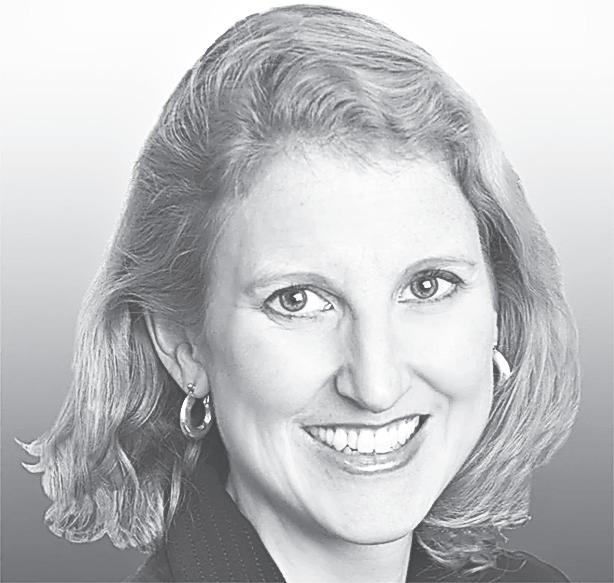
But despite decades of efforts, the report makes clear that major disparities remain. A person’s place of birth still determines more than half of their lifetime earnings. Globally, over 800 million people survive on less than three dollars a day. That is why achieving the 2030 SDG targets is in jeopardy. For example, for SDG 8 on decent work and economic growth, we lag well behind, having met only two thirds –or 66 per cent – of the indicators. If we wish to improve living conditions for everyone and achieve social justice, accelerating the SDGs is crucial. Decent work is a key thread that helps to tie the SDGs together, because decent work is more than making a living: it is a barometer of how well we are doing in society as a whole, including health, education, equality, and responsible consumption and production. When work is productive, paid fairly, safe, equitable and inclusive, freely chosen and with rights, we have social justice. But decent work does not just “happen”. History shows that, without strong institutions, productivity gains do not translate into better lives. Institutions strengthen basic human rights, such as the rights to education and to a healthy environment, and ensure equal opportunities, fair distribution, and a voice for both workers and employers. Social dialogue is the most
effective way to balance the interests of workers and employers and help make growth equitable.
Right now, our institutions are being tested. Three massive transitions are reshaping the world of work everywhere: the impact of a hotter planet and the move to a greener economy, the digital revolution and demographic change. These transformations are creating new jobs and destroying old ones. They have the potential to bring fresh opportunities but they also risk deepening existing divides. How these changes will play out depends largely on the choices that societies make today.
In November 2025, the second World Social Summit will be held in Doha. This global gathering will once again bring together government representatives, workers, employers and civil society, three and a half decades after the first summit. It represents a critical moment to turn past pledges into real change.
We must reaffirm the promise made in Copenhagen: that social justice and inclusive economic development are everyone’s business and in everyone’s interest. But above all, we must take decisive action. The ILOled Global Coalition for Social Justice offers a platform to help move us in the right direction. Already, it brings together governments, employers’ and workers’ organisations, and other partners to accelerate action and cooperation towards achieving social justice and decent work for all.
If we succeed, we can help ensure that economic productivity and social progress are linked. Because in the end, social justice is not an impossible ideal. It is the only route forward to a sustainable future for all of us.



Associated Press
FRANCE and Saudi Arabia hope to use this year’s gathering of world leaders at the United Nations General Assembly and the increasingly horrific war in the Gaza Strip to inject new urgency into the quest for a two-state solution to the Israeli-Palestinian conflict.
Those efforts include a new road map for eventual Palestinian statehood in territories Israel seized in the 1967 Mideast war, and moves by several Western countries to join a global majority in recognizing such a state before it has been established.
Britain, Canada and Australia formally recognized a Palestinian state on Sunday, joining nearly 150 countries that have already done so, and France is expected to follow suit at this week’s General Assembly.
But the efforts to push a two-state solution face major obstacles, beginning with vehement opposition from the United States and Israel. The US has blocked Palestinian officials from even attending the General Assembly. And Prime Minister Benjamin Netanyahu, who is opposed to Palestinian statehood, has threatened to take unilateral action in response — possibly including the annexation of parts of the West Bank.
That would put the Palestinians’ dream of independence even further out of reach.
The creation of a Palestinian state in east Jerusalem, the West Bank and Gaza has long been seen internationally as the only way to resolve the conflict, which began more than a century before Hamas’ Oct. 7, 2023, attack sparked the ongoing
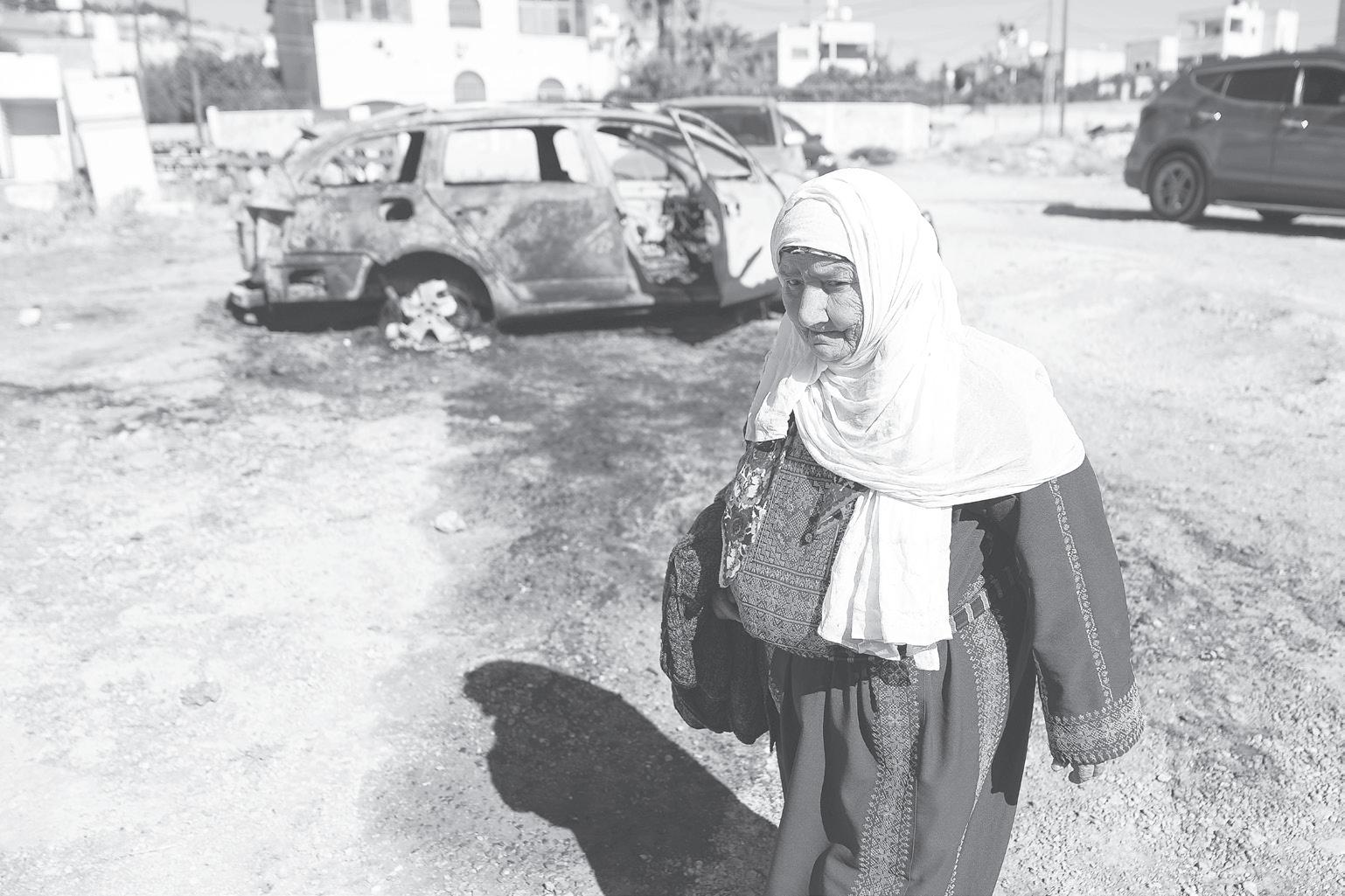
war in Gaza.
Proponents say this would allow Israel to exist as a democracy with a Jewish majority. The alternative, they say, is the status quo in which Jewish Israelis have full rights and Palestinians live under varying degrees of Israeli control, something major rights groups say amounts to apartheid.
“Israel must understand that the one state solution, with the subjugation of the Palestinian people without rights -- that is absolutely intolerable,” UN SecretaryGeneral António Guterres said last week. “Without a two-state solution, there will be no peace in the Middle East.”
Peace talks launched in the early 1990s repeatedly faltered amid violence and the expansion of Israeli settlements aimed at preventing a Palestinian state. No substantive negotiations have been held since
Netanyahu returned to office in 2009.
Israel annexed east Jerusalem, considers it part of its capital, and has long encouraged the growth of Jewish settlements in and around Palestinian neighbourhoods.
The occupied West Bank is home to over 500,000 settlers with Israeli citizenship and some 3 million Palestinians who live under Israeli military rule, with the Palestinian Authority exercising limited autonomy in scattered enclaves.
In Gaza, Israel’s retaliatory offensive has killed tens of thousands of Palestinians, displaced some 90% of the population of 2 million, left much of the territory uninhabitable and pushed some areas into famine. A new offensive threatens to empty and flatten the largest Palestinian city.
Netanyahu’s government and most of Israel’s political
class were opposed to Palestinian statehood even before the war. The Trump administration has shown no interest in reviving peace talks, instead calling for the relocation of much of Gaza’s population to other countries, a plan Israel has eagerly adopted even as critics say it would amount to ethnic cleansing.
Perhaps hoping this is a darkest-before-dawn moment, France and Saudi Arabia have advanced a phased plan to end the conflict by establishing a demilitarized state governed by the Palestinian Authority with international assistance.
The plan calls for an immediate end to the war in Gaza, the return of all hostages and a complete Israeli withdrawal. Hamas would hand power to a politically independent committee under the auspices of the Palestinian Authority
— something it has already agreed to — and lay down its arms, which it has not.
The international community would help the Palestinian Authority rebuild Gaza and govern the territories, possibly with the help of foreign peacekeepers. Regional peace and integration, likely including Saudi normalization of ties with Israel, would follow.
The 193-member world body approved a nonbinding resolution endorsing the so-called “New York Declaration” earlier this month.
The United States and Israel say the international push for a Palestinian state rewards Hamas and makes it harder to reach a deal to halt the war and return the remaining hostages.
The Gaza ceasefire talks broke down again when Israel carried out a Sept. 9 strike targeting Hamas’ negotiators in Qatar, one of the main mediators. The US had walked away from the talks in July, blaming Hamas, and Israel unilaterally ended an earlier ceasefire in March.
Israel also says that creating a Palestinian state would allow Hamas to carry out another Oct. 7-style attack on an even wider scale. Hamas leaders have at times indicated they would accept a state on the 1967 lines, but the group remains formally committed to Israel’s destruction.
Netanyahu portrays international recognition of Palestinian statehood as an attack on Israel. During a meeting with Secretary of State Marco Rubio last week, Netanyahu said “it is clear that if unilateral actions are taken against us, it simply invites unilateral actions on our part.”
Netanyahu and his farright coalition partners have long wanted to annex large
parts of the West Bank, which would make it virtually impossible to establish a viable Palestinian state.
The US has not taken a public position on the issue, but in an interview with Fox News, Rubio linked “this conversation about annexation” to the issue of statehood recognition.
The United Arab Emirates has called annexation a “red line,” without saying what effect it might have on the 2020 Abraham Accords, in which the country normalized ties with Israel.
The French-Saudi plan sidesteps the most divisive issues in the conflict: final borders, the fate of the settlements, the return of Palestinian refugees from past wars, security arrangements, the status of Jerusalem and recognition of Israel as a Jewish state.
It also relies heavily on the Palestinian Authority, the current leadership of which is despised by many Palestinians who view them as corrupt and autocratic. Israel says they are not fully committed to peace and accuses the Palestinian Authority of incitement despite recent reforms.
The plan calls for Palestinian elections to be held within a year, but President Mahmoud Abbas has delayed previous votes when it looked like his party would lose, blaming Israeli restrictions. Hamas, which won the last national elections in 2006, would be excluded unless it gives up its weapons and recognizes Israel.
All of which means the plan is likely to end up on the mound of past Mideast accords, parameters and road maps, leaving Israel in full control of the land from the Jordan River to the Mediterranean Sea, ruling millions of Palestinians who are denied basic rights.
ABC will reinstate Jimmy Kimmel’s late night show in the wake of criticism over his comments about the assassination of conservative activist Charlie Kirk, officials with the network said Monday.
“We have spent the last days having thoughtful conversations with Jimmy, and after those conversations, we reached the decision to return the show on Tuesday,” said a statement from the network.
ABC suspended Kimmel indefinitely after comments he made about Kirk, who was killed Sept. 10, in a monologue. Kimmel said “many in MAGA land are working very hard to capitalize on the murder of Charlie Kirk” and that “the MAGA gang” was “desperately trying to

characterize this kid who murdered Charlie Kirk as anything other than one

of them.”
Kimmel has hosted “Jimmy Kimmel Live!” on ABC since 2003 and has been a fixture in television and comedy for even longer. He is also well known as a presenter, having hosted the Academy Awards four times.
Backlash to Kimmel’s comments about Kirk was swift. Nexstar and Sinclair, two of ABC’s largest affiliate owners, said they would be pulling “Jimmy Kimmel Live!” from their stations. Others, including several fellow comedians, came to his defense.
There was no immediate comment from Nexstar and Sinclair in response to messages from The Associated Press.
President Donald Trump, one of Kimmel’s frequent targets, posted on social media that Kimmel’s suspension was
“great news for America.” He also called for other late night hosts to be fired.
Kimmel was asked in an interview with Variety this past summer if he was worried that the administration would come after comedians. He expressed concern that a crackdown could be on the way.
“Well, you’d have to be naive not to worry a little bit,” he said. “But that can’t change what you’re doing.”
Kimmel’s suspension arrived in a time when Trump and his administration have pursued threats, lawsuits and federal government pressure to try to exert more control over the media industry. Trump has reached settlements with ABC and CBS over their coverage.
Trump has also filed defamation lawsuits against The Wall Street Journal and The New York Times. Republicans in Congress stripped federal funding from NPR and PBS.
Brendan Carr, the head of the Federal Communications Commission, issued a warning prior to Kimmel’s suspension that criticized Kimmel’s remarks about the Kirk assassination.
“We can do this the easy way or the hard way,” Carr said. “These companies can find ways to change conduct, to take action, frankly, on Kimmel, or there is going to be additional work for the FCC ahead.”
Carr denied on Monday that he threatened to revoke ABC’s local station licenses because of
Kimmel’s remarks.
“Jimmy Kimmel is in the situation he’s in because of his ratings. Not because of anything that’s happened at the federal government level,” Carr said at the Concordia Annual Summit. The suspension also happened at a time when the late night landscape is shifting. CBS announced the cancellation of Stephen Colbert’s show over the summer Kimmel’s contract with The Walt Disney Co.owned network had been set to expire in May 2026. Word of the reinstatement came as hundreds of Hollywood and Broadway stars — including Robert De Niro, Ben Affleck, Jennifer Aniston, Selena Gomez, Lin-Manuel Miranda, Tom Hanks and Meryl Streep — urged Americans “fight to defend and preserve our constitutionally protected rights” in the wake of Jimmy Kimmel’s suspension.
More than 430 movie, TV and stage stars as well as comedians, directors and writers added their names to an open letter Monday from the American Civil Liberties Union that argues it is “a dark moment for freedom of speech in our nation.”
A lso Monday, A B C ’s “The View” weighed in on the controversy after not raising it for two episodes after Kimmel was suspended. C ohost Whoopi Goldberg opened the show saying: “ N o one silences us” and she and her fellow hosts condemned Disney’s decision.
By FAY SIMMONS Tribune Education Reporter jsimmons@tribunemedia.net
STUDENTS from Louise McDonald High School took the lead in a major island-wide cleanup, joining forces with local partners to protect Bimini’s environment as part of World Clean-up Day.
More than 120 students and faculty from Louise McDonald High School took the lead in a community-driven cleanup effort, joined by local residents, community leaders, and employees of Ocean Cay MSC Marine Reserve.
The initiative, organized by the MSC Foundation in partnership with the high school, the Bimini District Council, and the Bimini for Sustainable Tourism Council, mobilised participants to collect approximately 30 fifty-gallon bags of litter and marine debris. The collective effort accounted for over 200 volunteer hours.
Students also attended an interactive awareness session led by Emeline Bouchet, marine
programme manager at the MSC Foundation’s Marine Conservation Centre at Ocean Cay. Ms Bouchet highlighted the importance of protecting marine habitats, reducing waste, and the critical role young people play in advancing sustainability.
“This clean-up is about much more than removing trash,” said Ms Bouchet.
“It is about sparking a mindset shift, empowering the next generation, and ensuring that people, wildlife, and the natural beauty of places like Bimini thrive together in balance. The enthusiasm of the students and the support from local leaders and residents show what is possible when we act together.”
The clean-up also saw support from Senator Randy Rolle, representatives from Local Government and the Ministry of Tourism, and residents.
“It was an honour to join the MSC Foundation, Louise McDonald High School, and other partners in celebrating World

Clean-up Day here in my hometown of Bimini,” said Mr Rolle. Nadia Sherman-Rolle of the Ministry of Tourism added: “Joining together with the MSC Foundation, the Louise McDonald High School, and other local stakeholders for World Cleanup Day was both meaningful and rewarding. It was a pleasure for the Bimini Tourist Office team to be there, lend a hand, and support an initiative that highlights the importance of keeping our island clean and beautiful.”
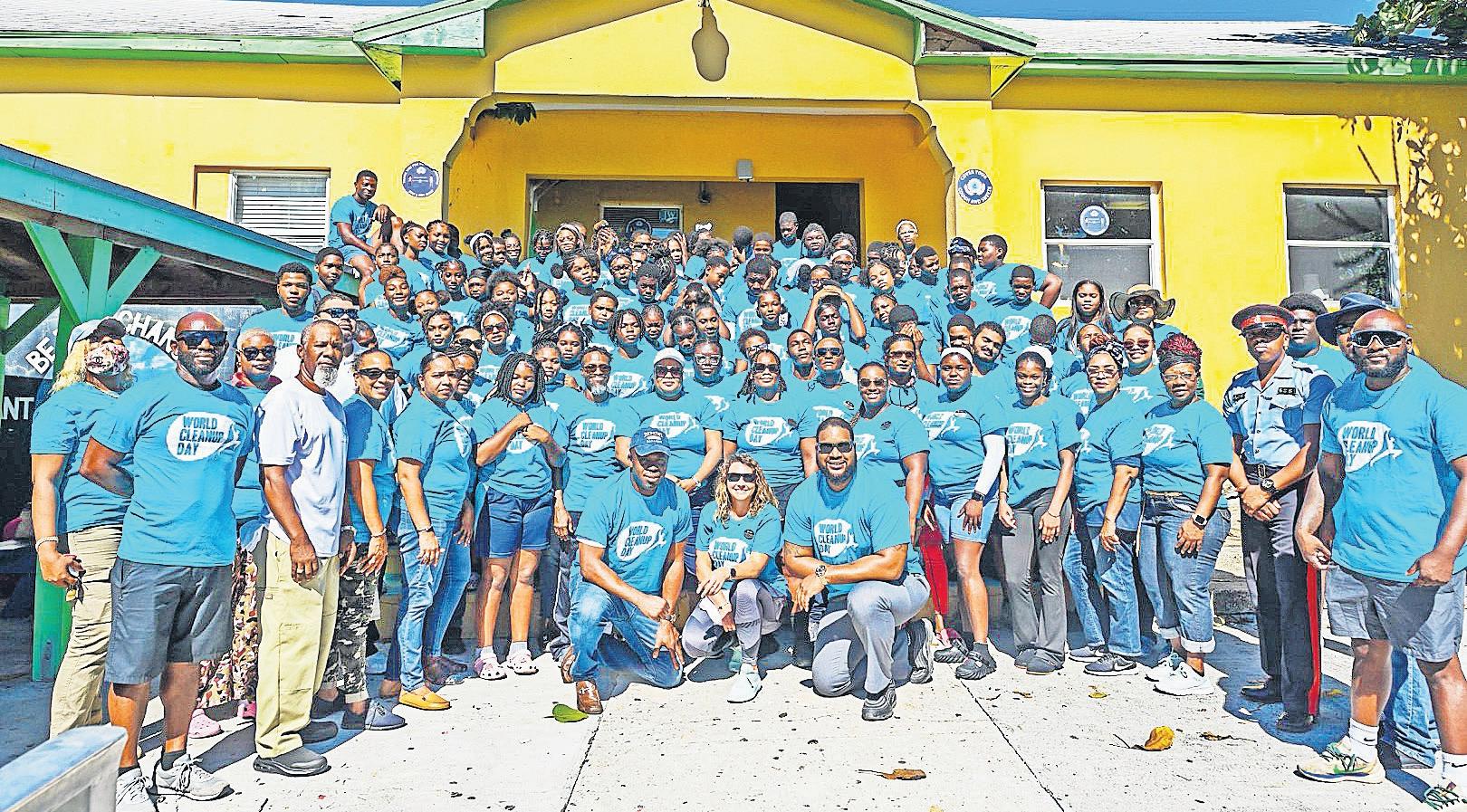
STUDENTS across The Bahamas made their mark on the world through creativity, as Sadie Curtis Primary School and others joined millions globally in celebrating International Dot Day.
Sadie Curtis Primary School, along with other public schools in New Providence and the Family Islands, and youth groups such as the Nassau Girl Guides and boys’ Cub Scouts, participated in the global movement recognizing creativity, confidence, and collaboration.
Observed annually, International Dot Day was inspired by Peter H. Reynolds’ beloved storybook The Dot, a tale that encourages children and people of all ages to make their mark on the world through creativity. Since it began, the celebration has grown into a worldwide event in schools, libraries, and homes.
Sadie Curtis Primary School marked the occasion with a variety of vibrant and imaginative activities. Students created classroom murals,
STUDENTS at Thelma Gibson Primary School took centre stage as leaders in learning during a special assembly marking International Literacy Day. The event was highlighted by the proud display of books authored by the students themselves – a powerful symbol of how young voices are leading the charge in promoting literacy.
The celebration was attended by special guest Ann Marie Davis of the Office of the Spouse of the Prime Minister, who applauded the students’ achievements and encouraged them to continue being active participants in their own educational journey.
Mrs Davis emphasised that literacy is more than just reading and writing – it is the foundation for freedom of expression, gender equality, and progress in a digital world.
“This day gives us the opportunity to observe how our students are receiving and utilizing educational tools and programs designed to promote literacy,” she said.
“And I want all of you
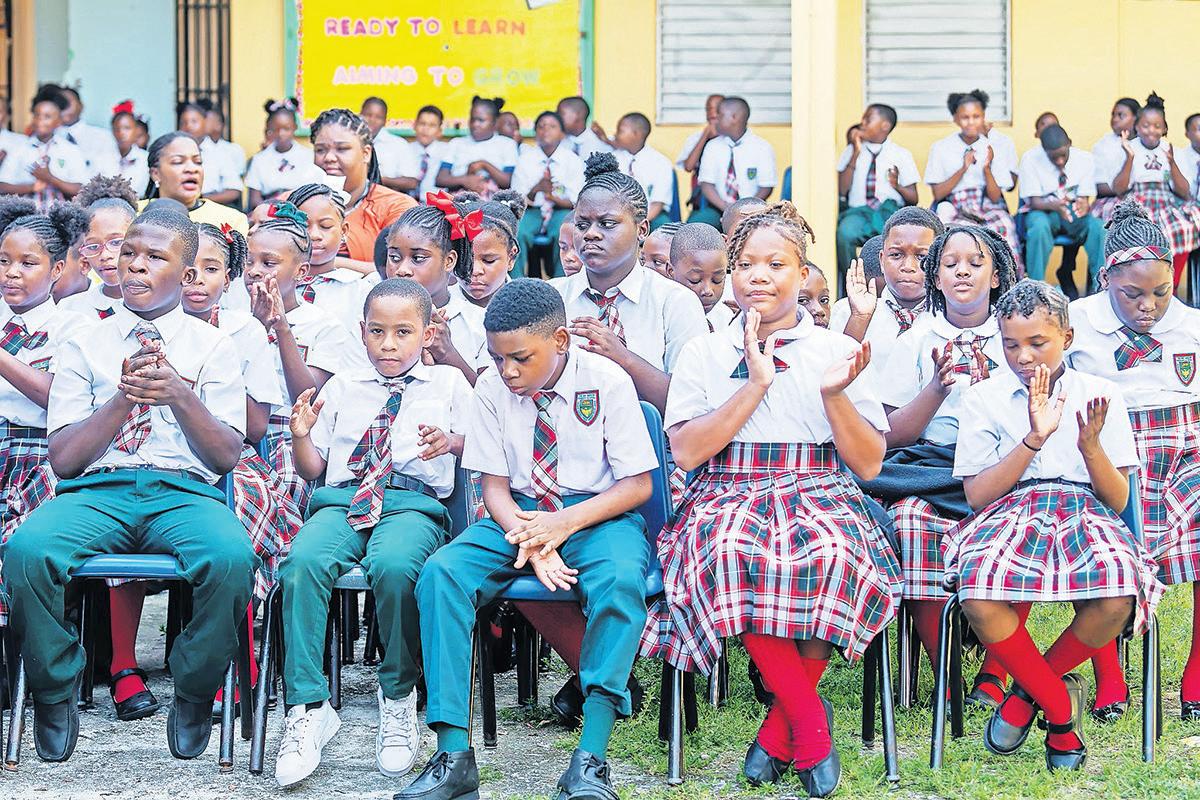
smart students to do me a very big favour: become active participants with your parents, teachers, churches, and communities in fostering quality education.”
She challenged the students to take the lead by reading newspapers to their parents and grandparents, forming book clubs at school to share stories with one another, participating in speech and elocution contests, and reading bedtime stories to their younger brothers and sisters. These everyday actions, she said, can help build a strong national culture of literacy.
Following the assembly, Mrs Davis toured the school alongside school officials and Minister of Energy and Transport JoBeth ColebyDavis. During the tour, she stopped to admire the students’ self-authored books – clear evidence that literacy is alive and well among the nation’s youngest citizens.
International Literacy Day, celebrated globally on September 8, was established by UNESCO in 1966. This year marks 59 years of championing literacy as a basic human right and a driver of development.
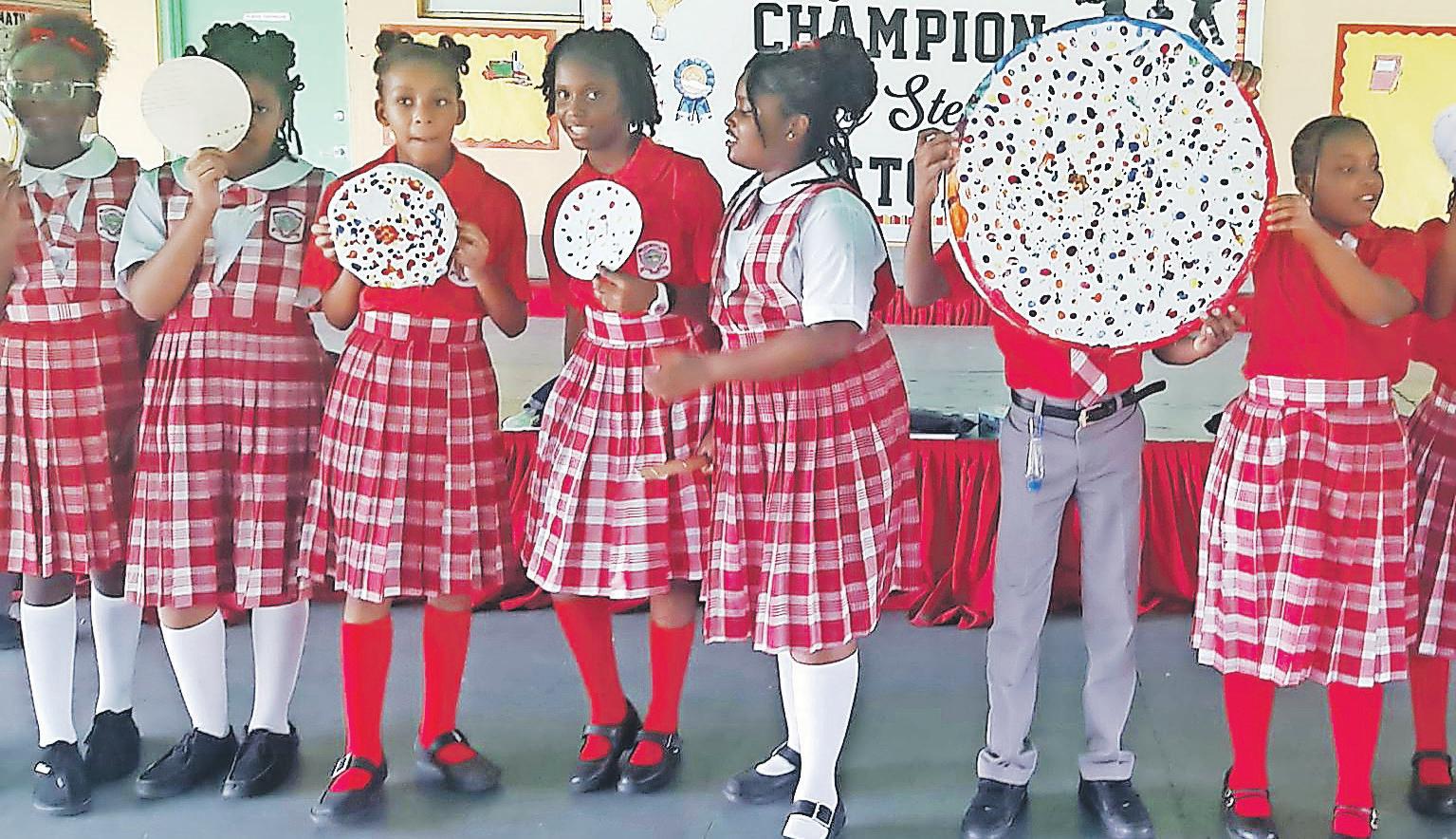
wrote original poems and songs, constructed three-dimensional dots from cardboard, and used chalk to “make their mark” on pavements and paper. Grade Six students joined millions online to view international Dot Day celebrations and were also considered for participation in a mini display at the Mall at Marathon to help raise awareness of the event.
Across the country, educators
joined in the spirit of the day by wearing polka dots, showcasing their commitment to creativity and expression in education. International Dot Day served not only as a celebration of artistic expression, but also as a reminder that small marks can lead to big changes—and that every child has the potential to leave a lasting impression on the world.
DW DAVIS Junior High School students are one step closer to realising their musical dreams, thanks to a second major donation of instruments.
The contribution, made by local businesswoman Astra Charlton, comes just months after her initial donation earlier this year.
Mrs Charlton first became aware of the school’s need while her son was taking private lessons with Thurman Johnson, Head of the Music Department at DW Davis.
“This donation actually came from a simple conversation I had with Mr Johnson, who happens to
be my son’s music tutor,” she said during the presentation. “We were reflecting on our own humble beginnings, growing up in Bain Town, and how important it is to give back to students in similar situations.”
She added: “I encourage you to take advantage of the opportunities you have. You can do anything you put your mind to. I know you’ve heard that before, but I am telling you, you’re bright, you’re talented, and you can do it. Hopefully these instruments will give you the opportunities you need.”
Mr Johnson said: “Music engages both the left and right sides of the brain, which strengthens problem-solving, creativity, and discipline,” he said. “It opens doors to countless opportunities, including scholarships even more so than athletics. That’s why programs like this are so valuable for our students.” The presentation coincided with World Suicide Prevention Day. Principal Latoya Burrows said: “Today is Suicide Prevention Day. And for some of our students, just being able to pick up an instrument, having a teacher who cares and a donor who is willing to assist can make a world of difference.”
